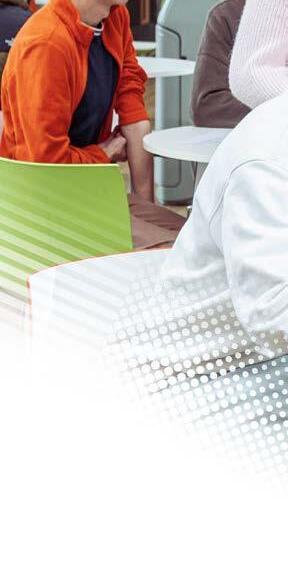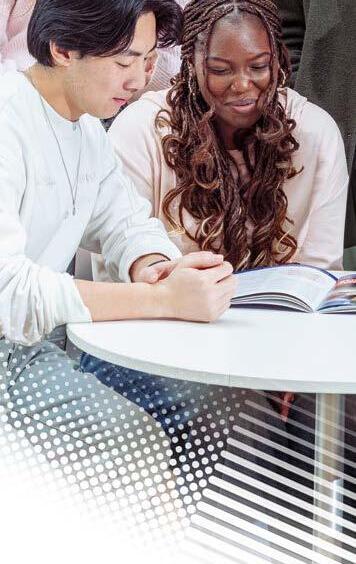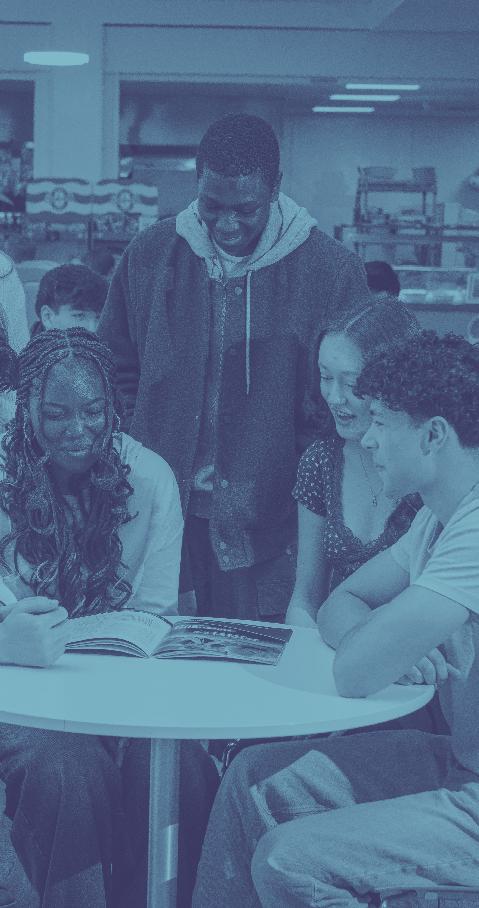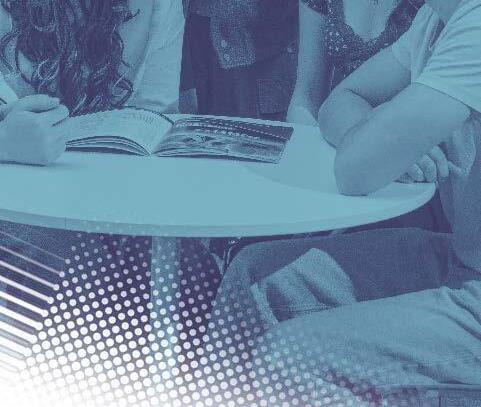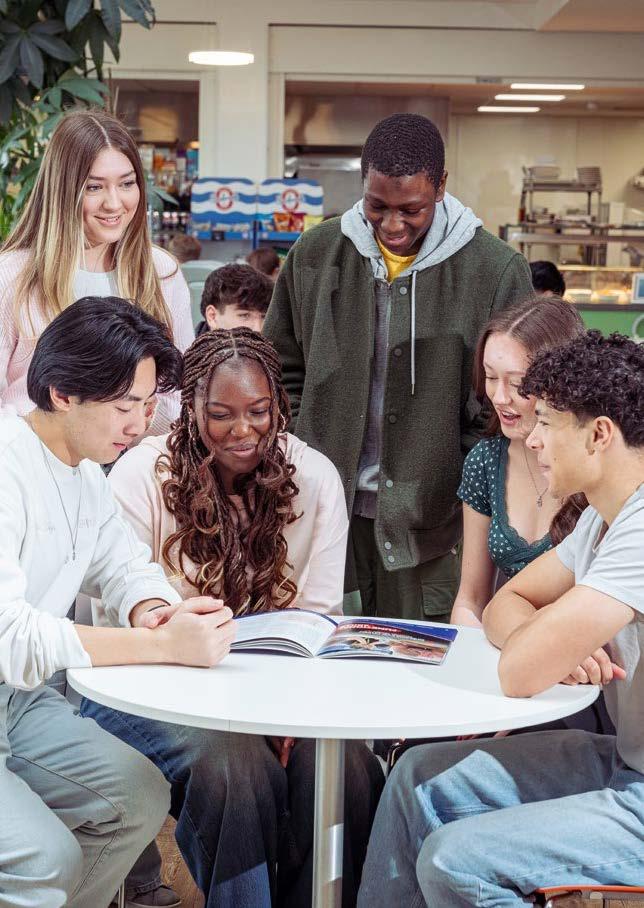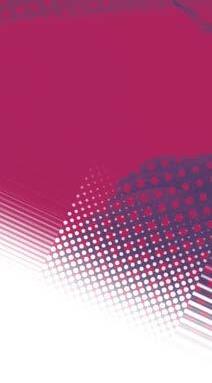




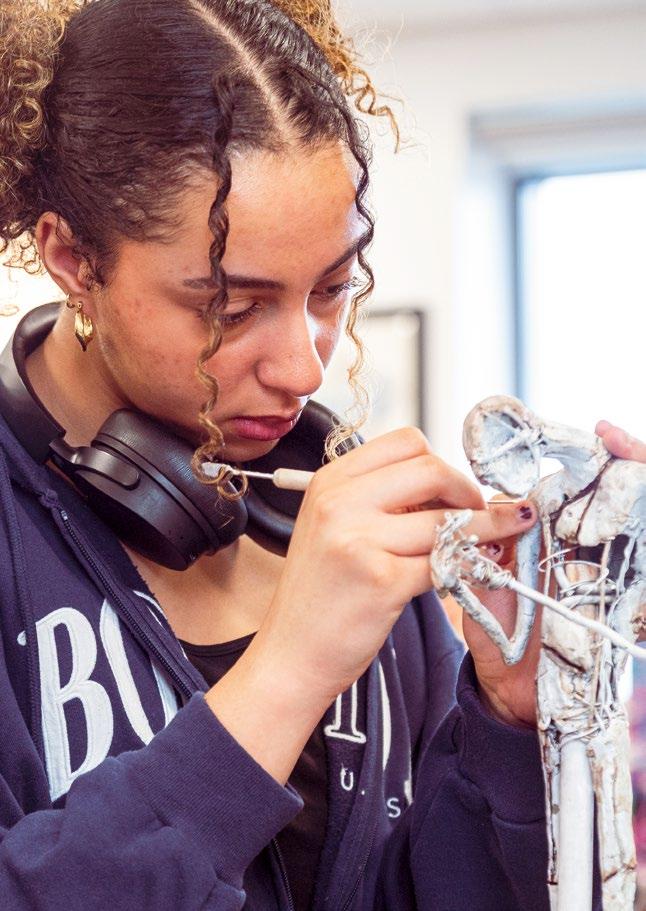

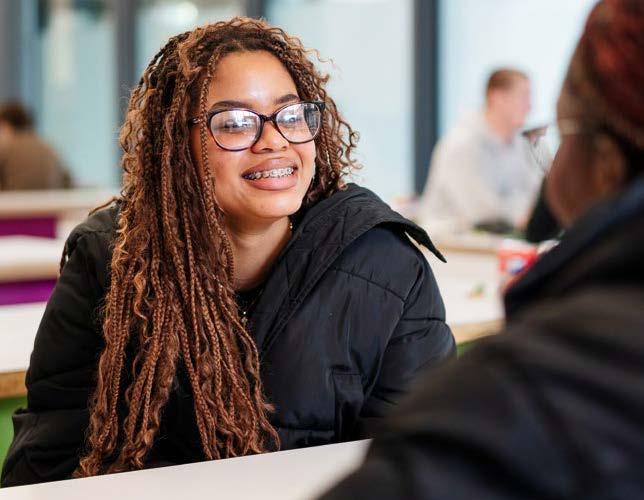
Visit the college with your parents/carers to find out more about the range of opportunities that RSFC has to offer. You will gain an insight into the courses, enrichment activities and the unique individualised support we provide. Students are expected to be accompanied by a parent or carer.

Open Day
Saturday 18 October
10am-2pm
Last entry 1:30pm
Open Evening
Thursday 20 November 4pm-7pm
Last entry 6:30pm

Rochdale Sixth Form College (RSFC) is proud to be recognised as one of the top-performing sixth form colleges in the country. Our reputation is built on exceptional academic outcomes and a deep-rooted commitment to helping young people realise their full potential.
We take particular pride in the value we add to our students, which is evident in their achievement of higher grades across A level and Applied General/BTEC qualifications, and their successful progression to university, apprenticeships, and employment.
As Principal, I’m delighted to reflect on another outstanding year for our college community. This academic year, our students achieved record-breaking results: a testament to their dedication, resilience, and the unwavering support of our talented staff.
Yet these accomplishments go far beyond statistics. They represent doors opened, ambitions fulfilled, and the life-changing impact of education. Whether our students are heading to higher education, apprenticeships, or the world of work, they leave RSFC equipped with confidence, character, and a strong foundation for future success.
At the heart of our college are specialist teachers and support staff who are passionate about working with young people. With a broad curriculum and exceptional advice and guidance, students are empowered to pursue pathways that reflect their aspirations and enjoy a rich, rewarding learning experience.
What truly sets RSFC apart are the intangible qualities that shape our culture. We are known for valuing every individual and for our relentless commitment to nurturing the potential within each student and staff member. Our students are hardworking, ambitious, and consistently demonstrate exemplary behaviour. Our staff are skilled, dedicated professionals who make a meaningful difference every single day.
We remain steadfast in our mission to improve life chances for every student. By cultivating curious minds, compassionate hearts, and courageous spirits, we prepare individuals to thrive in an ever-evolving world.
We are also proud to be part of the Altus Trust, a community of like-minded institutions united by shared values and a commitment to excellence in education. This partnership strengthens our ability to deliver outstanding outcomes and ensures our students benefit from a wider network of innovation, collaboration, and opportunity.
Studying at RSFC is more than an academic journey. It is an experience that stays with you for life. Once you have been part of our college, you will always be part of the RSFC family, and you will always be warmly welcomed back.
I sincerely hope you will choose to join us.
Best wishes,
Karl Smith, Principal






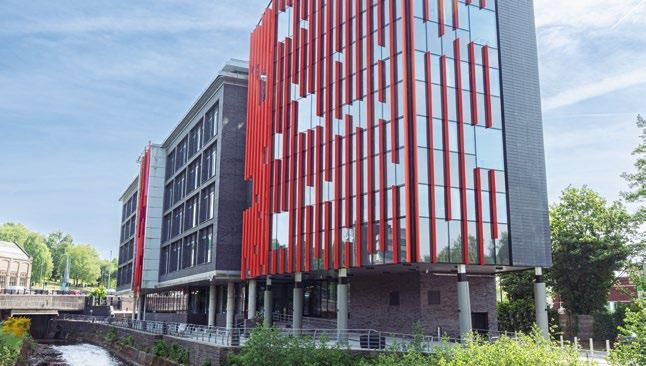
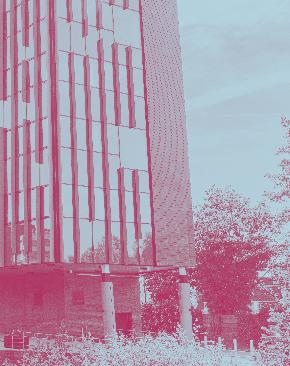
99%
We are part of a unique Oxbridge collaboration with the University of Cambridge and Pembroke College, Oxford.
83% OVER PASS rate progression to university
We provide specialised, dedicated and personalised academic and pastoral support.
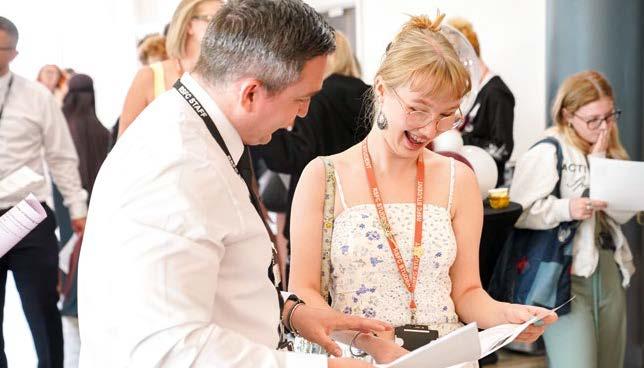
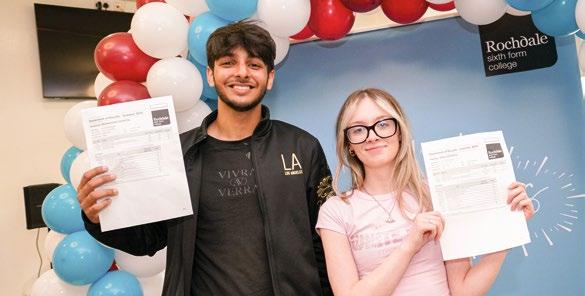

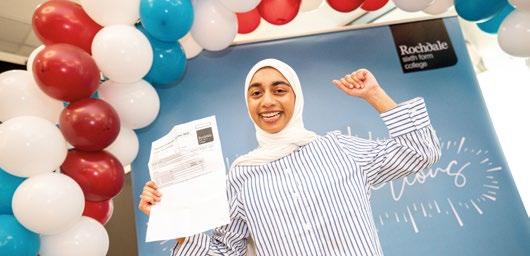
We are proud to celebrate another year of exceptional A level success, achieving an outstanding 99.3% pass rate in all qualifications.
An impressive 58% of grades were awarded at A*–B and 83% at A*–C, with 85% of students progressing to university securing their first-choice place. Remarkably, 39% gained entry to Sutton 30 universities –some of the most prestigious and competitive institutions in the country. We are also delighted to celebrate a record-breaking achievement, with 10 students progressing to the Universities of Oxford and Cambridge.
These achievements are a true reflection of our students’ resilience, determination, and ambition, and they fill the entire college community with pride.

As well as progressing to leading universities, many of our students have secured high-quality apprenticeships and employment in sectors such as Finance, Law, Public Services, Engineering, and Construction, showcasing the wide range of pathways to success available at Rochdale Sixth Form College.
This year’s success reflects the determination of our students and the tireless commitment of our dedicated teachers. Together, their pursuit of academic excellence has led to these extraordinary accomplishments, continuing to raise aspirations and transform futures.
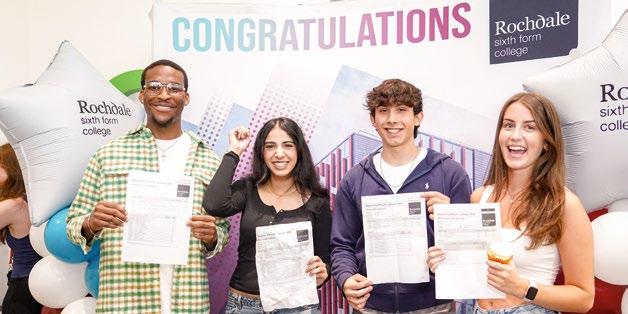
RSFC takes great pride in the quality of guidance and support we provide to students as they identify the right pathway after their studies – whether that be university, apprenticeships, or employment. As a result, our students progress to a wide range of universities and courses, from Medicine and Engineering to Psychology and Marketing.
University of Birmingham
University of Cambridge
University of Chester
Coventry University
Durham University
Edge Hill University
The University of Edinburgh
University of Huddersfield
Imperial College London
King’s College London
Lancaster University
University of Leeds
Leeds Beckett University
The University of Liverpool
Liverpool John Moores University
The London School of Economics
and Political Science
Loughborough University
The University of Manchester
Manchester Metropolitan University
Newcastle University
University of Nottingham
University of Oxford
University of Salford
University of Sheffield
UA92
University of York
ARM


BAE Systems
Casey Construction Group
Foot Asylum
Greater Manchester Police (GMP)
Moffat and Riley
Rochdale Borough Council
Samsung
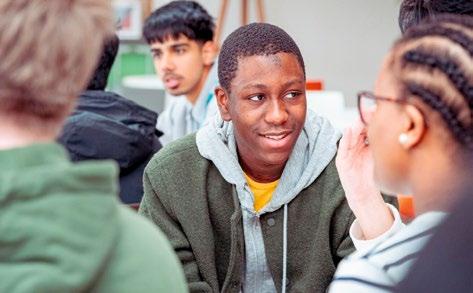



39% went on to study at a Sutton 30 University
83% enrolled at Higher Education
10
RSFC students progressed to study at An Oxbridge University


















Kingsway




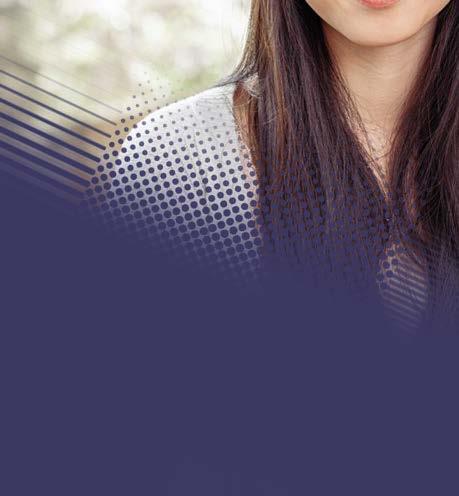
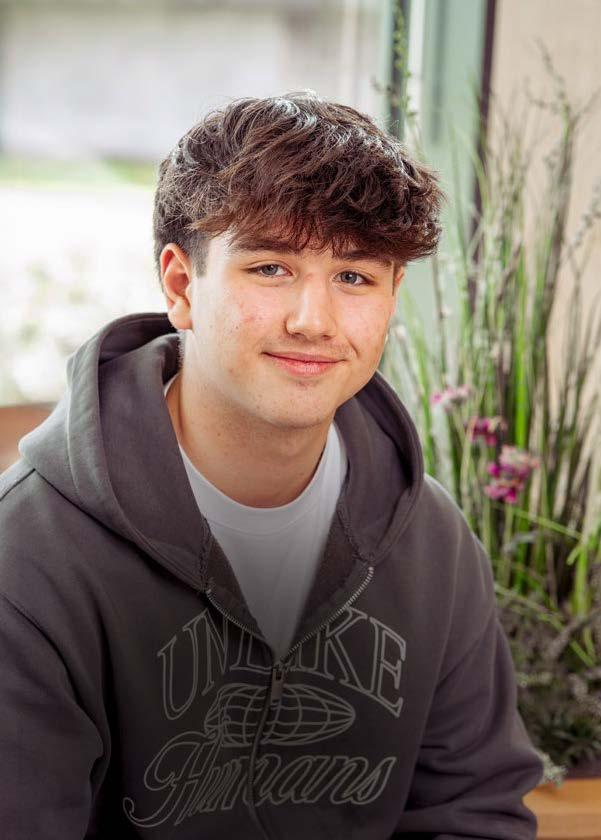

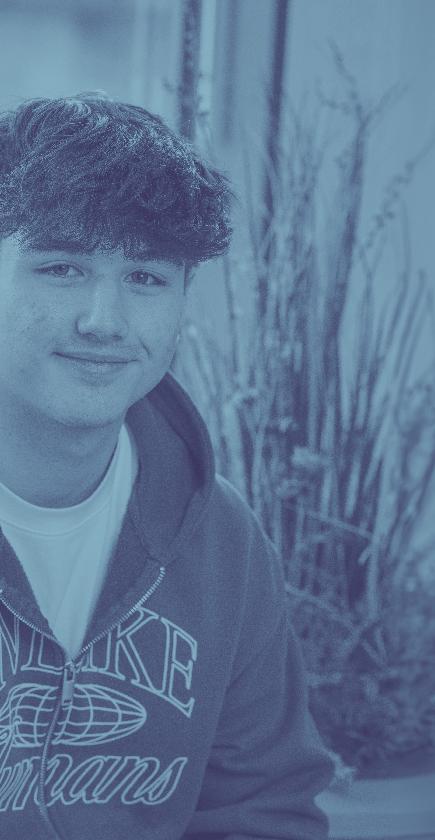
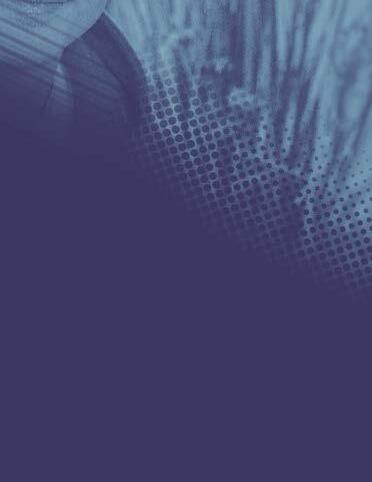

Aspire is our comprehensive package of support and development opportunities to ensure you achieve your potential academically, and develop the skills and aptitudes you need to be a successful, responsible citizen and to progress to a positive destination.
At RSFC we want to ensure that everyone who comes through our doors has the support and challenge needed to enable them to achieve their ambitions, whatever these may be.
When it comes to your next steps, it’s not just about your qualifications, it’s about empowering you to become a critical thinker who can make a real impact. Aspire also helps you understand the world around you and how to find your place in it as a global citizen.
Student Performance and Development Leaders (SPDLs)
Tutorial programme
Enrichment
Social development
Trips & visits
Student Union
Progression support
External speakers
Students describe their experiences at RSFC as ‘heart-warming’, ‘enjoyable’, ‘rewarding’, ‘motivational’ and ‘safe.’ ofsted 2022



We have a specialist team of Student Performance and Development Leaders (SPDLs) at RSFC who are here to support you throughout your time at college and beyond. When you join RSFC we get to know you really well so that we can help you achieve your full potential.
Your SPDL will be your critical and professional friend while you are studying with us. You will meet with them each week in a group tutorial and you will have regular oneto-one meetings to talk exclusively about you!
Your SPDL will help you settle quickly into college life, and they will work with you to ensure you achieve the best results possible. Your SPDL will help you to think about your goals, set targets to enable you to reach those goals and to track your progress.
Being a sixth form student is about being an independent learner and being able to self-evaluate, which means recognising your strengths and areas for development, and taking responsibility for your own learning.
Your SPDL will have a clear overview of your academic and personal development while at RSFC, and they will support you on your journey to success.
They will be a central supportive figure in your transition from school to college, as well as supporting and guiding you in all aspects of your progression to higher education and employment. Your SPDL will be the point of contact for your teachers and your parents/ carers to discuss any aspect of your progress and welfare. All SPDLs are also fully trained Mental Health First Aiders.

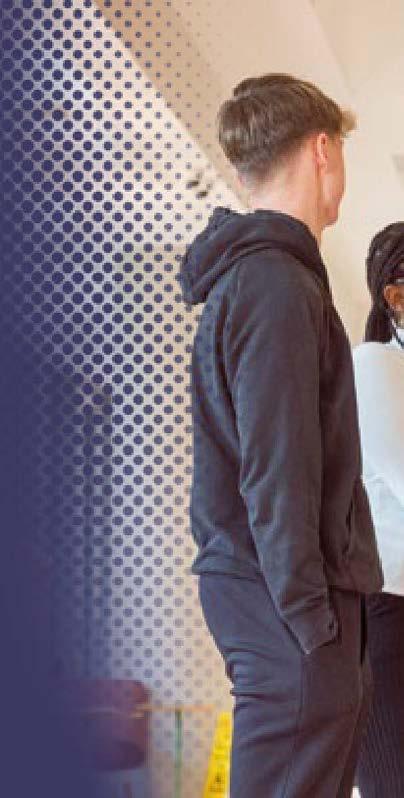
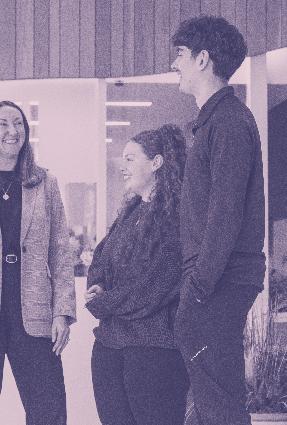
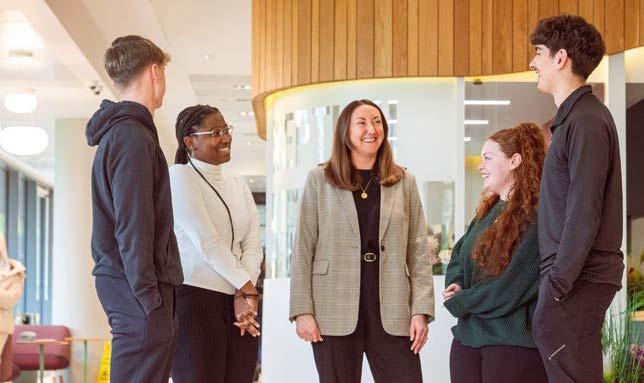
You will have one lecture-style session in the theatre covering a range of Personal, Social, Health, and Economic education (PSHE) topics and a second classroom session with your SPDL to discuss and debate the content covered in the theatre session.
The tutorial programme is mapped out over two years and addresses in full the KS5 PSHE Programme of Study including:
Health and wellbeing
Relationships
Living in the wider world
We have a wide range of external speakers who are passionate about sharing their expertise and knowledge with you. We have a number of speakers who visit from different universities and also a range of speakers who are experts in their field.
Some of the speakers we have hosted this year include:
Sean Anthony – Health & Wellness
Daniel Wilsher – Wellbeing
Mike Nicholson – Progressive Masculinity
Michelle Scally Clarke – Professional
freelance author
Career Panelists
Alumni students sharing their journeys
Azeem Amir – Disability awareness sessions (RSFC Alumnus)
Speakers from universities and employers



There is more to life at RSFC than gaining your qualifications. We want you to achieve your potential in and out of the classroom. That is why all students at RSFC complement their academic studies by taking part in our extensive enrichment programme. Enrichment teaches you new skills and builds on your existing subject knowledge to make you stand out from the crowd when applying for university or employment.
All students engage in a bespoke enrichment programme, which focuses on developing essential skills to support your progression to higher education and employment.
Some of the skills developed and promoted in enrichment include:
Communication
Confidence
Critical thinking
Independent research
Lateral thinking
Presentation skills
Problem solving
Resilience and resourcefulness
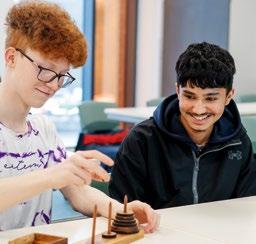
In your first term, you will choose a 10-week programme, on either the Pre-Graduate or the Pre-Professional Pathway:
The Pre-Graduate Pathway is based on specific subject areas and is designed to consolidate and develop your knowledge in preparation for a university application. Some Pre-Graduate programmes link directly to existing A level and BTEC subjects, whereas others are intended to bridge the gap between sixth form and a university course.
The Pre-Professional Pathway is based around a career, rather than an academic subject, and is designed to develop your understanding of a specific job role. You will learn about the skills and knowledge needed for a certain type of employment and in some cases have the opportunity to undertake a related work placement.
Below is a sample of the Pre-Graduate and Pre-Professional enrichment activities; a full list of all enrichment activities is available on our website and in the enrichment booklet.
PRE-GRADUATE
Astrophysics
Biochemistry
Climate Change
Medical Society
Puzzling Problems
PRE-PROFESSIONAL
Accounting
Careers in Law
Journalism
Photoshop
Pre-Teaching
In the second term, you will have a choice of selecting another Pre-Graduate or Pre-Professional programme or choosing a Wider Skills enrichment. The Wider Skills enrichment activities are varied in nature and aim to give you the chance to develop new skills that go beyond traditional classroom study.
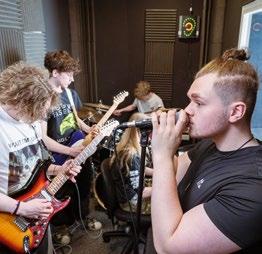
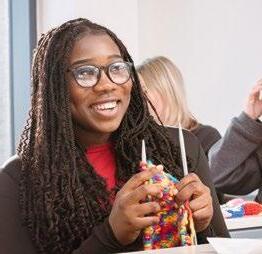
The following are examples of Wider Skills enrichments that were available for students in the last academic year:
British Sign Language
College Musical
Duke of Edinburgh Award
First Aid
Sports Teams – Football/Netball
Some enrichment programmes, such as Mandarin, the college musical, and the Duke of Edinburgh Award, run throughout both Term 1 and Term 2.

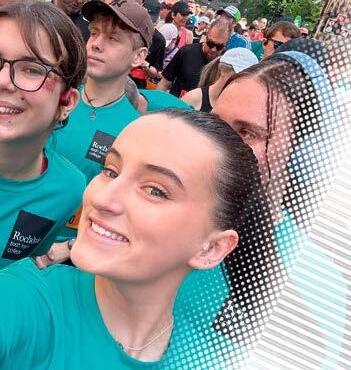

As part of your social development, we expect you to become active and responsible citizens in the local and wider community. To facilitate this all students participate in the Social Development Programme; currently this includes activities such as befriending the elderly, community support, fundraising and gardening. In summary, the intent of Aspire is to enable and empower you to achieve your full potential, by leaving college with a set of standards and values which will prepare you for the future.




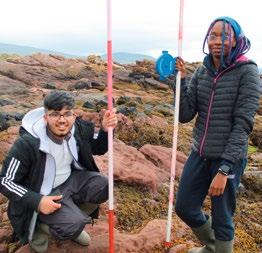

At Rochdale Sixth Form College, you will have the opportunity to take part in an exciting range of academic excursions and activities.
With every subject area committed to offering at least one trip during the two-year period of study, you will have a variety of opportunities to gain experience beyond the classroom.
Our commitment to making extra-curricular opportunities accessible for all students is reflected in the way that most trips are at least partly subsidised by the college.
In the 2024/2025 academic year we ran over 75 trips. These included:
RESIDENTIAL COURSE-RELATED TRIPS:
Marine Biology (Scotland)
Duke of Edinburgh Award
Geography Fieldwork (Lake District)
Cambridge Residential (University of Cambridge)
PE (Barcelona)
MFL (Barcelona)
Physics (CERN – Geneva)
Psychology (Krakow)
Sociology (Berlin)
Home Office (London)
DAY VISITS:
STEM Experience Day (University of Liverpool)
Battlefields (York)
Women in STEM Apprenticeship Fair
Sociology Day (University of Leeds)
Investment Challenge (The University of Manchester)
Apprenticeship Festival (Manchester Metropolitan University)
Women in Maths (The University of Manchester)
Law Taster Day (University of Huddersfield)
Curve Theatre (Leicester)
National Apprenticeship Show
RESIDENTIAL EXPERIENCES:
Ski Trip to Austria
New York
Rochdale Sixth Form College places a very strong emphasis on the involvement of its students in the running and organisation of the college.
We are keen to ensure that you shape our future direction and we seek your views through focus groups, questionnaires and the Student Union. The Student Union is involved at all levels of the college, acting as a link between the senior leadership team and the student body. Union members represent students in all matters concerning their education and help to promote the general welfare of students. They are also responsible for organising and implementing many of the major student events in the calendar each year. All events organised by the Student Union aim to promote change, raise awareness or raise donations.
Events this year have included:

















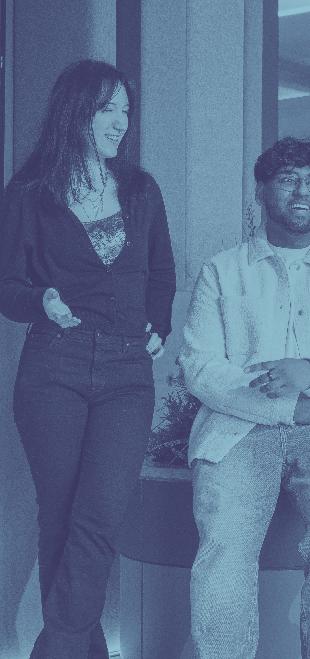


At RSFC we aim to promote the wellbeing of all individuals, by providing young people with the tools to be able to manage their wellbeing as well as providing specialised support where needed.
To help with this we provide the following opportunities and support:
A tutorial programme to support both mental, emotional and physical wellbeing, by improving your knowledge and understanding of mental illness and helping you to build on your skills to gain resilience
A range of guest speakers focused on mental wellbeing
Student mental wellbeing ambassadors who signpost students to specific support within the college as well as running events and information stands throughout the year to support wellbeing
Teaching and support staff who are Mental Health First Aid trained
Access to staff who are trained in bereavement support
Access to a range of opportunities across college such as enrichment, social development, work experience and trips and visits
Access to external services to support specific areas of mental wellbeing
Access to an Education Mental Health Practitioner
Two specialist British Association for Counselling and Psychotherapy (BACP) registered counsellors who are available to provide a variety of counselling techniques tailored to support your individual needs at the earliest opportunity
The Achievement Centre is a large study space that is open to all students to use in their study periods. It is also open before and after lessons and is staffed at all times throughout the day.
It is a quiet space that allows you to complete independent study based on your subject content, as well as engaging in wider reading and research.
The Learning Support Officers (LSOs) are always on hand to help you with things like study skills, organisation and time management. The Achievement Centre has computer stations and tables to allow you to work on all aspects of your subjects. You may be referred to the Achievement Centre by your SPDL for a short ‘placement’. When on placement, you receive support from the LSOs to help you work towards targets set by your teachers.
In addition to working in the Achievement Centre, our dedicated team of Learning Support Officers (LSOs) work with students with a range of additional learning needs and use specialist knowledge and equipment to help all students reach their potential.
Examples of support include working with students and assisting them in lessons, or meeting outside of lessons on a one-to-one basis to keep track of progress and help them towards success at RSFC.
RSFC is committed to ensuring that all our students are supported to develop an appropriate career plan and encouraged to take part in a career placement during their time here. Impartial one-to-one careers advice and guidance is available for all students at RSFC.
In the first instance, your Student Performance and Development Leader (SPDL) will give you advice on education and work opportunities, as well as assisting you with your applications for universities, apprenticeships or employment. We offer one-to-one interviews, careers workshops and access to a range of careers resources and software.
Your SPDL will work with you to plan your opportunities for progression and will support you in finding relevant career placements. It is our aim to support students with securing a career placement before they leave college, to support applications for further study and employment. RSFC students have been successful in securing career placements with a range of organisations in health, law, construction and the financial sectors.
A number of students who attended these placements were also offered employment when their studies were complete.
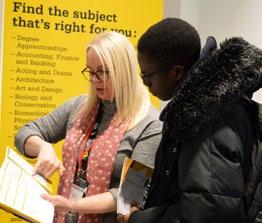
For some university courses, a career placement is an essential part of the entry requirements, including initial teacher training and all health-related courses. If you study an AAQ or a BTEC Diploma, you will complete a career placement as part of your course. This can be self-sourced or may be sourced by the college.
RSFC has established a wide network of partnerships which has enabled us to offer relevant and valuable career placements. In addition, you will participate in careers and apprenticeship events, volunteering, visits to local organisations and a mock interview. We also welcome a variety of guest speakers to the college from a range of national and local organisations.






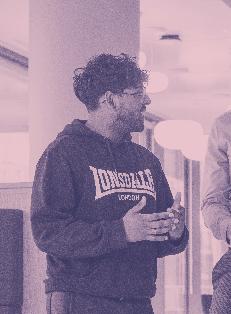





The Aspire+ programme aims to equip you, as a supplement to your academic provision, with skills in academic research, debating and critical thinking.
This is to prepare you for the rigorous admissions processes for competitive courses such as Medicine, Dentistry and Veterinary Science, as well as applications to Oxbridge and popular courses at Sutton 30 universities. More so than ever before, universities are now expecting future academics to possess a repertoire of core skills that are not only vital to succeeding at undergraduate level, but are essential to creating adaptability in the ever-evolving twenty-first century workplace.
As part of the Aspire+ programme, you will have a 10-week timetabled, extracurricular programme in a subject area of your choice. This is delivered by subject specialists and provides learning that goes beyond taught units.
The entry criteria is an average of 7 at GCSE, but students will be invited on to the Aspire+ enrichment if they are excelling in the first term.
As part of the Aspire+ programme, you will receive:
An opportunity to complete the Extended Project Qualification (EPQ)
Individualised preparation and support when applying for challenging and competitive university courses, including Oxbridge, Sutton 30, Medicine, Dentistry and Veterinary Science
Additional one-to-one ‘stretch and challenge’ work with your subject teachers
Opportunities to participate in various access programmes from prestigious universities such as Oxford, Cambridge and Manchester
Organised visits and conferences, including trips to the country’s leading universities
Talks by guest academic speakers
Access to academic resources and electronic texts in various university libraries

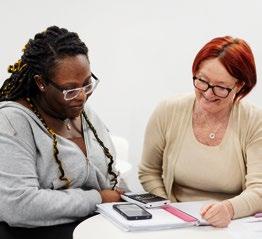
The Extended Project Qualification (EPQ) is a qualification that allows you to develop and enhance your abilities beyond the A level specification.
The EPQ is worth half an A level (up to 28 UCAS points) and is recognised by universities and employers, with many universities making lower offers to students undertaking an EPQ.
This is an excellent qualification for you to show prospective universities that you have the autonomy to pursue interests through academic research and reporting of topics that are not covered in your A level subject lessons. If you are applying for competitive courses after RSFC, then the EPQ will help you stand out, giving you the chance to explore a topic area you have a passion for, and providing an excellent addition to personal statements and university interviews.
Core Mathematics is a one-year course that is designed for Aspire+ students who have not opted for an A level in Mathematics or Statistics but wish to deepen their mathematical understanding.
The course is not an A level but it does have UCAS points attached to it, equivalent to an AS level.
Core Mathematics will support courses with mathematical content including: Biology, Chemistry, Computer Science, Economics, Geography, Geology, and Psychology. Core Mathematics will support you with the mathematical demands of your course and, in addition, will develop your logical thinking, a skill vital to further study and employment.
RSFC has a unique memorandum of understanding with the universities of Oxford and Cambridge, meaning we work closely with both institutions to provide specialist support for students who are applying.
Lecturers, fellows and senior admission tutors have all visited RSFC to deliver supervisionstyle workshops and provide information on making successful applications. The college is also the only sixth form that is a hub for both the OxNet and Cambridge HE+ selective access programmes; these year-long subject programmes culminate in residential visits and workshops at the universities.
If you are interested in applying to Oxford or Cambridge, not only will you enjoy specialist one-to-one advice on the application process, you will also have the opportunity to visit one, or possibly both, of the universities. In addition to open days and visits, RSFC students have attended summer schools and residential workshops with bespoke subject focus, such as Maths and Engineering, the Arts and Humanities.
The School of Maths is an exciting opportunity for students who achieve high grades in GCSE Mathematics.
If you achieve a grade 8 or 9 in GCSE Mathematics and choose to study A level Mathematics you will be enrolled onto the School of Maths and will get the chance to take part in the following:
Sutton 30 university visits
Monthly lecture series
Entrance exam preparation
Reading challenges
National and international competitions
Trips and visits
For those students who enrol on A level Further Mathematics, there is an additional Weekly Oxbridge-style workshop. These are small group sessions of up to six, in which you will discuss interesting mathematics beyond the A level specification, complete competitions both individually and with your peers and develop your presentation skills – by writing short presentations about your wider reading and other research into your own areas of mathematical interest.





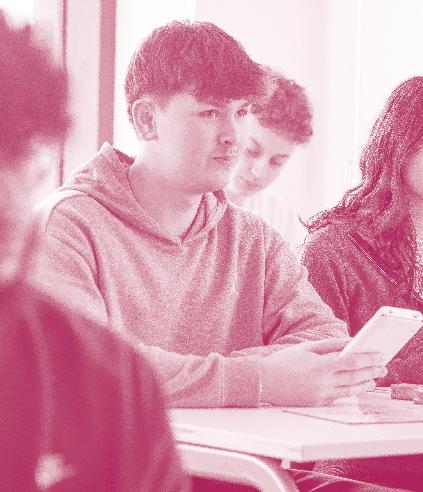

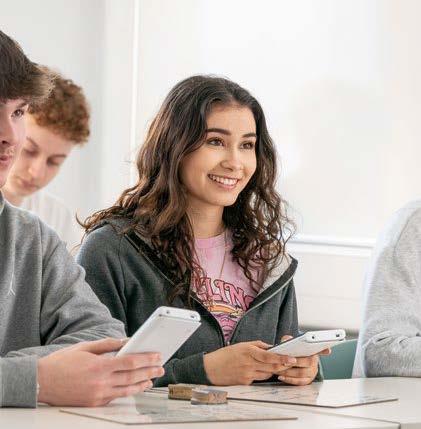

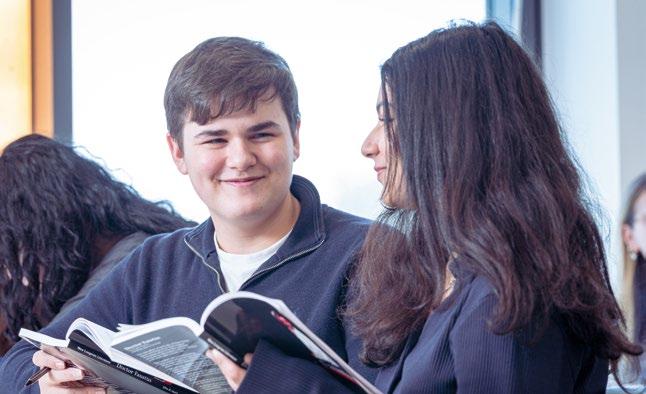

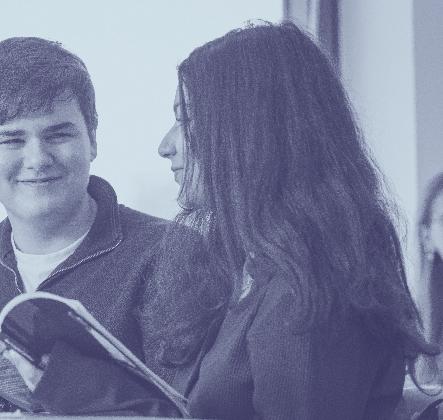
The School of Humanities offers an exceptional opportunity for ambitious students aiming to study English or humanities at competitive universities.
You need to be in an Aspire+ tutor group and have obtained at least grade 7s in both English GCSEs and in an other essay based subjects where applicable.
Through a tailored programme of extracurricular activities, you will select a subject specialism and extend your knowledge with wider reading, lectures, and seminars led by subject experts from the college and university lecturers. You will take part in Oxbridge-style discussions, develop the analytical and critical skills needed to thrive in humanities disciplines, and gain invaluable preparation for university admissions assessments and interviews.
With visits to leading universities such as Oxford, Cambridge and Manchester, this programme will broaden your academic horizons and give you the confidence to succeed in applications to the most prestigious institutions.


Holy Family RC and CE College

Comparative Literature with a Year Abroad DESTINATION


UCL (University College London)



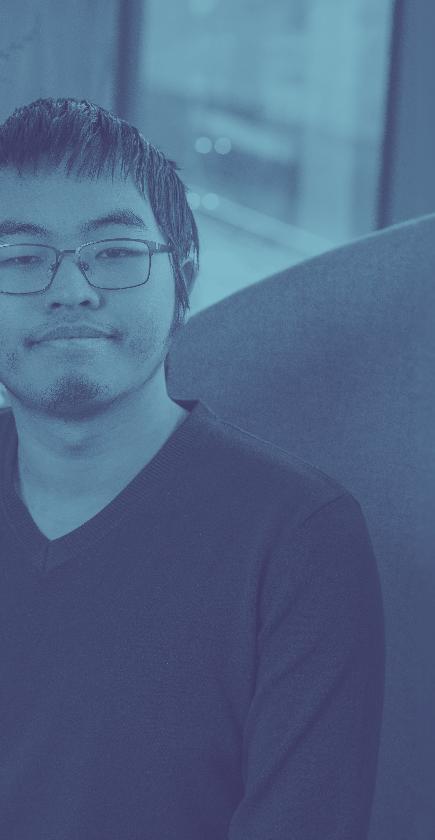


At RSFC, we’re proud to offer a broad and exciting range of 36 subjects – spanning traditional academic disciplines as well as unique options not typically available in secondary schools. You’ll enjoy the flexibility to combine almost any subjects to create a programme that truly suits
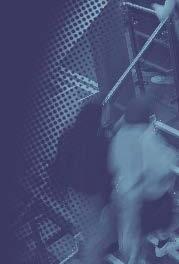

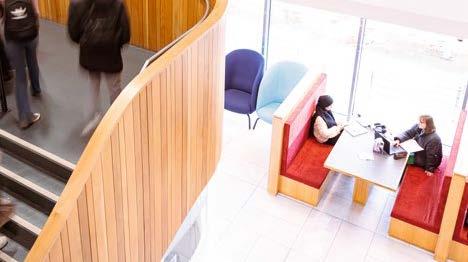
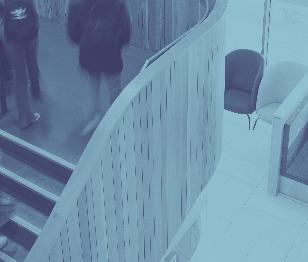
Most of our year 12 students choose to study three A levels. However, we also offer a range of pathways to suit different learning styles and goals. These include the option to study four A levels, or to combine the BTEC level 3 or the new BTEC level 3 National Alternative Academic Qualifications with A level qualifications.
As well as your chosen subjects, each week you’ll take part in at least one hour of enrichment, a group tutorial, and a lecture designed to broaden your learning and support your development. You’ll also engage in our RSFC Social Development Programme – an opportunity to give back to the community while building essential life and employability skills.
Throughout your time with us, you’ll have regular one-to-one meetings with your dedicated Student Performance and Development Leader (SPDL), as well as access to additional support when needed.
In year 13, you will continue with your subject choices from year 12, and still take part in weekly tutorials and lectures. There is also the opportunity for students, as part of our Aspire+ programme, to complete the Extended Project Qualification (EPQ), an excellent way to deepen your academic skills and enhance your university or career prospects.
When you apply, you’ll be asked to select a preferred subject combination to discuss at interview. Your offer will be based on your predicted GCSE grades and your future plans, and we’ll work closely with you to ensure you’re placed on the pathway that gives you the best chance of success.

Visit the college with your parents/carers to find out more about the range of opportunities that RSFC has to offer. You will gain an insight into the courses, enrichment activities and the unique individualised support we provide. Students are expected to be accompanied by a parent or carer.
Open Day
Saturday 18 October
10am-2pm
Last entry 1:30pm
Open Evening
Thursday 20 November 4pm-7pm
Last entry 6:30pm
To join RSFC, you’ll need a minimum of five GCSEs (or equivalent) at grade 4 or above, including Maths and/or English Language.
A positive reference, a strong attendance and behaviour record, and a successful college interview are also essential. Some courses have additional entry requirements – details are available on individual subject pages.
Choosing which subjects to study at sixth form is an exciting step in your educational journey – but we understand it can also feel a little overwhelming.
At RSFC, we’re committed to helping you select a course of study that aligns with your strengths, interests, and future aspirations. Our goal is to ensure that the subjects you begin with are the ones you’ll want to see through to success.
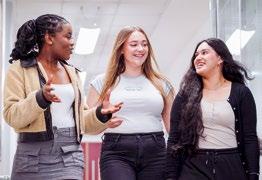
We place strong emphasis on providing high-quality pre-course guidance, so you can feel confident that your subject choices are both appropriate and ambitious.
To help you get started, here are a few helpful tips:
Think about your future goals: Whether you’re considering university, an apprenticeship, or a specific career path, it’s important to research any entry requirements – some courses or careers may require specific subjects.
Play to your strengths: Choosing subjects you’re already confident in will give you the best chance of achieving your full potential.
Follow your interests: You’re more likely to succeed when you’re genuinely engaged and enthusiastic about what you’re learning.
Talk to us: At your interview, we’ll take the time to understand your future plans and offer tailored advice to help you choose the most suitable programme of study.
With 31 A level subjects to choose from, there’s a wide variety of opportunities to suit every interest and ambition. A levels are two-year courses, assessed primarily through formal examinations at the end of the programme. Some subjects may also include coursework and/or controlled assessments, providing a balanced and comprehensive learning experience.
BTEC qualifications offer a more vocational approach to learning and are designed to equip you with practical skills and real-world knowledge. BTEC Diplomas are equivalent to two A levels and are ideal if you’re aiming for a specific career path. These courses are assessed through a combination of coursework, assignments, and examined units.
We offer the following BTEC qualifications: Business
AAQs offer a perfect blend of academic knowledge and practical, real-world skills, making them an exciting and engaging option for students who enjoy learning through application as well as theory. Equivalent in rigour to A levels and recognised by universities, employers, and apprenticeship providers, AAQs are designed to prepare you for your next steps, whether that’s higher education, a degree apprenticeship, or a skilled career.
We offer the following AAQs (equivalent to 1 A level)
Applied Science
Health and Social Care
Information Technology
Medical Science
Many of the subjects we offer may already be familiar to you, while others might be completely new.
When considering your options, think about:
What subjects do I genuinely enjoy?
In which subjects am I likely to perform well?
Which subjects align with my future career or university plans?

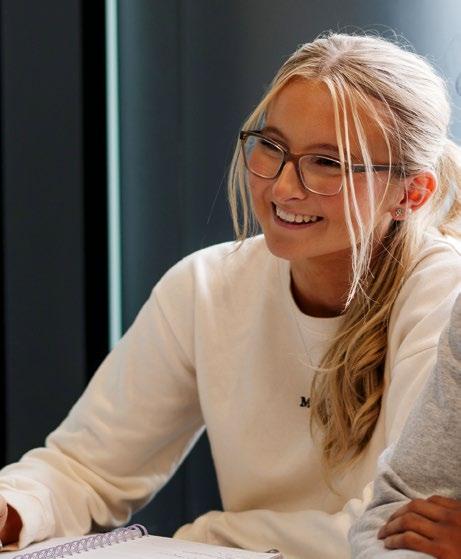
We aim to offer the following courses in the upcoming academic year, subject to staffing and demand. Full subject guides are available on our website and at our open events to help you explore each option in detail.




Accounting
Applied Science (AAQ)
Art & Design
Biology
Business (BTEC)
Business
Chemistry
Computer Science
Drama & Theatre
Economics
English Combined
English Language
English Literature
Film Studies
French
Geography
Geology


Graphic Design
History

Further Mathematics

Health & Social Care (AAQ)
Information Technology (AAQ)
Law
Mathematics
Media Studies
Medical Science (AAQ)
Music
Photography

Physical Education
Physics
Politics
Psychology
Sociology
Spanish
Statistics

Theology, Philosophy & Ethics
Accounting is the process of understanding, managing, and communicating the financial information of a business. Often referred to as the ‘language of business’, accounting translates a company’s performance for stakeholders such as investors, managers and regulators. Accountants work with numbers, engage in problem-solving, and are required to utilise effective communication skills to present and explain financial data.
A level Accounting helps you grasp the purpose of accounting and its vital role in business. It covers the foundational skills and knowledge necessary for professional accounting qualifications, providing a solid base for various career paths in the field and improving employability prospects.
A level Accounting is perfect for students who love working with numbers and solving puzzles. If you’re interested in how businesses run and want to play a key role in financial decision-making, this course is for you! You’ll learn the importance of ethics and professionalism in the world of finance. This course is best suited for students who are ready to embrace a challenging and intellectually rigorous path.
This subject provides a comprehensive journey into the world of accounting. You’ll gain a deep understanding of financial and management accounting principles and develop advanced skills in analysing financial data and preparing detailed reports.
The subject demands strong analytical and problem-solving abilities, as well as clear written communication skills to effectively present financial information to stakeholders.
A good understanding of accounting opens up any career in business and management. You can become a Financial Analyst, Auditor, or even a Chief Financial Officer, shaping the financial strategy of companies.
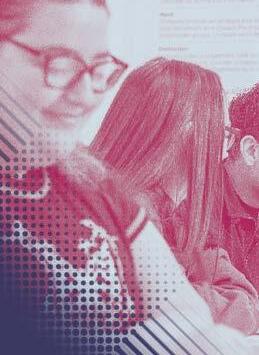
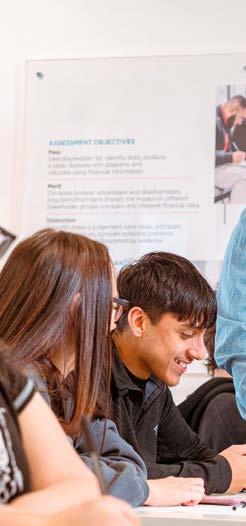
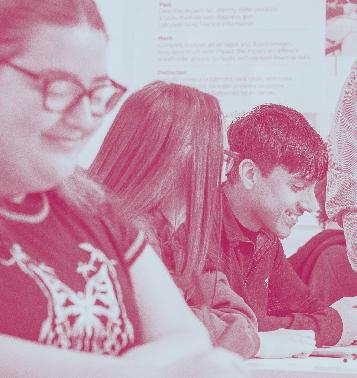

With skills in analysing financial data, ensuring regulatory compliance, and providing expert tax advice, you’ll be in high demand across various industries. You could also start your own business or offer freelance accounting services. With this qualification, the possibilities are endless, and the career prospects are bright.
You will complete two examinations at the end of the two-year course. Questions range from multiple choice to extended written responses.
Double entry model: Mastering the double-entry bookkeeping system, recording transactions, and preparing comprehensive financial statements.
Financial analysis and evaluation: Calculating and interpreting financial ratios, appraising business performance, and understanding the impact of transactions on profitability and liquidity.
Accounting concepts: Key accounting concepts such as money measurement, duality, cost, going concern, accruals, consistency, prudence, materiality, realisation, and business entity.
Ethical considerations: Understanding and applying ethical principles such as integrity, objectivity, professional competence, confidentiality, and professional behaviour in accounting practices.
Company and partnership accounts: Preparing internal financial statements for limited companies and partnerships, including adjustments and changes in partnership.

Costing methods: Marginal costing, standard costing, variance analysis, absorption costing, and activity-based costing.

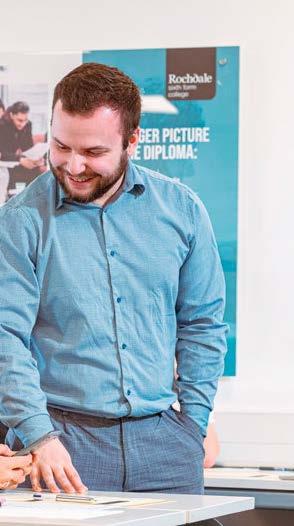
College entry requirements apply as detailed on page 27. In addition, a grade 5 or above is required in GCSE Mathematics.

The Applied Science AAQ can be studied alongside the Medical Science AAQ and other A levels.
This qualification is designed for students who want to develop scientific knowledge and technical skills relevant to both higher education and employment in science or healthcare.
You will study in our modern laboratories, equipped with up-to-date scientific instruments and resources. The course is delivered through a flexible, unit-based curriculum that combines written examinations with ongoing assignment-based work. You will gain valuable hands-on experience through practical science activities designed to reflect real-world contexts.
Throughout the course, you will also develop a wide range of essential skills, including laboratory techniques, analytical thinking, and effective communication – skills that are highly valued in science and healthcare careers.
This course is ideal for students who enjoy science and are interested in applying it to real-life challenges and scenarios. It is particularly well-suited to those considering a future in scientific, health, or medical fields. The qualification appeals to learners who prefer a practical, skills-based approach to education and are motivated by continuous assessment rather than exams alone.
The Applied Science course provides a broad foundation in the three main scientific disciplines: Biology, Chemistry and Physics. You will use a wide range of laboratory equipment and develop industry-standard techniques that are directly relevant to scientific employment. Learning will take place through a combination of written exams, practical activities, data analysis and scientific report writing.
This qualification opens up numerous progression routes into university, apprenticeships or employment in science and healthcare. You may go on to study degrees in subjects such as Biochemistry, Microbiology, Paramedic Science, Nursing, Radiography or Pharmacy.
Alternatively, you could pursue a career in laboratories, research institutions or clinical healthcare settings. Many students also progress into science-related apprenticeships or technical roles. Universities and employers highly regard the applied scientific knowledge and practical experience that this course provides.

College entry requirements apply as detailed on page 27. In addition a grade 4 in each of the separate sciences. You will also need a grade 4 in GCSE Mathematics, a grade 4 in English Language, and a grade 4 in one additional full GCSE subject.
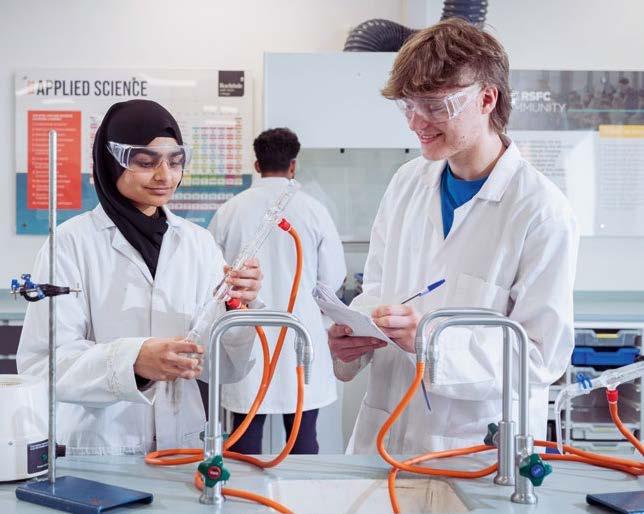

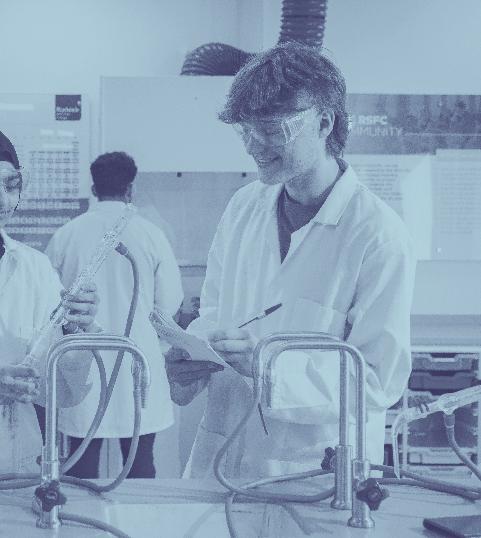

Art is defined as the expression or application of human creative skill and imagination, typically in a visual form such as painting or sculpture, producing works to be appreciated primarily for their beauty or emotional power. It is a way of expressing yourself, your thoughts and feelings in relation to the world around you.
Studying Art & Design will inspire you to problem-solve and communicate in a creative and innovative way. You will explore and create a visual language which says something about the way you understand and perceive the world around you. This will enable you to develop and discover ways to change perspectives and affect the attitudes of others. Using a variety of techniques and materials, you will be able to develop your own artistic interests and style reflecting your personal and cultural identity. This qualification is an excellent progression pathway onto higher education. There will be opportunities to exhibit your work, join residential visits, and it includes the option to undertake additional enrichment activities.
If you enjoy developing your ideas, working practically and are not afraid to be experimental with a variety of different materials, then Art & Design is the subject for you.
You will develop your skills working with different materials and techniques on a range of challenging scales. Projects will build on your existing skills from your GCSE and school studies, along with experimenting with new techniques and processes designed to help you plan for final pieces. You will be valued as an individual and encouraged to pursue areas of study that you feel passionate about, enabling you to develop your own approach as an artist.
Art & Design is a traditional and wellrespected subject that can be combined with a variety of subjects to support progression to university.
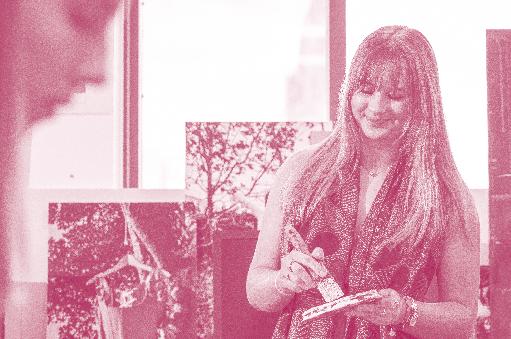

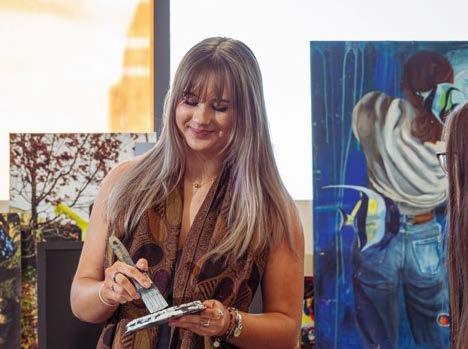

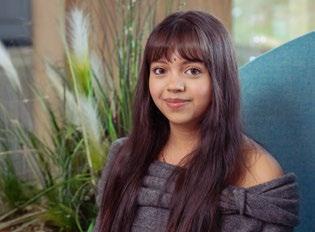
This qualification allows you to work in the creative industries with employment opportunities ranging from fashion, gallery or museum management, teaching, fine art practice, community arts, art therapy and wellbeing, funding and project management, events management, architecture, and interior design. Recent students have gone on to study Architecture at the University of Cambridge.
Assessment is through a combination of coursework assignments and a controlled examination, including sketchbook work and a final piece.

Workshop-led sessions will introduce you to a range of art studio materials and techniques.
These include:
Specialist drawing and painting processes
Printmaking
Casting and sculpture
Creative textiles
Photography – both traditional dark room and digital processes
What our students say:
Art and Design at RSFC has given me the freedom to grow creatively. The supportive teachers have really encouraged me to explore ideas and helped me pursue my interest in a creative career.
Dee Dee Bailey
In the second term you will select from varied and diverse starting points that will fit your strengths as an artist. Your personal project will be an independent project designed to develop high-level practical and thinking skills.
You will complete your personal investigation started in year 12 with ambitious and challenging final pieces. You will consolidate your sketchbook of investigation with compositional planning and experimentation for your final pieces. In addition, you will start an examination sketchbook, which will give you a chance to explore new themes, materials and outcomes, all of which will be exhibited in an end of year show to celebrate your achievements.
College entry requirements apply as detailed on page 27. In addition, you must achieve a grade 4 or above in GCSE Art or pass at BTEC. If GCSE or BTEC Art is not studied, a comprehensive portfolio will be required for assessment by our staff.
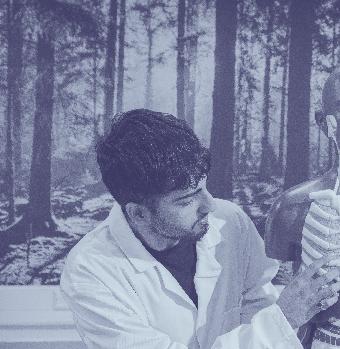


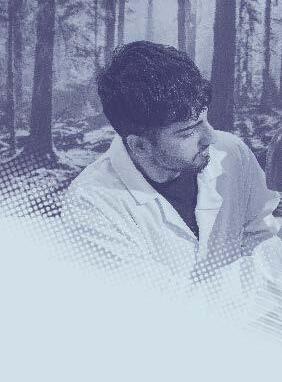
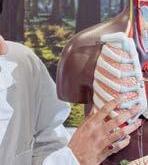
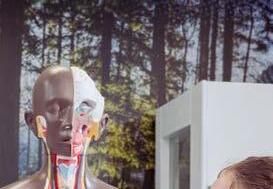

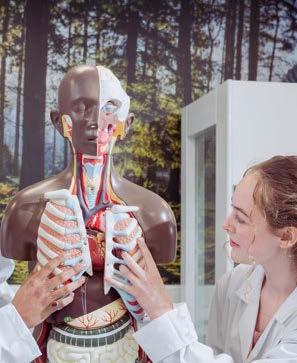
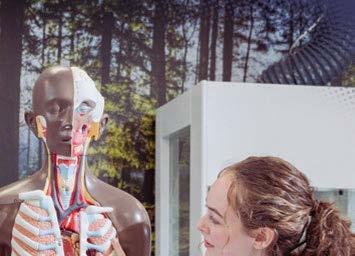
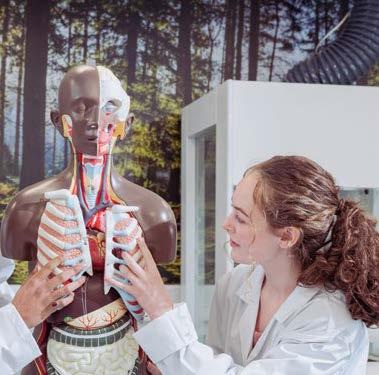
Biology is the study of living organisms, from the molecular biology of virus replication to the study of animals and plants in their natural habitats. Biology is a fascinating subject and includes all the traditional areas of biology as well as the advances in areas such as epigenetics and recombinant DNA technology.
Biology has a wide range of interesting applications in research, drug and vaccine development, health care and the environment. Many of our students continue their study of biology at university in such diverse fields as Marine Biology, Immunology, Genetics, Radiography, Environmental Health, Biomedical Sciences, Pharmacology, Medicine and Dentistry. Most medical courses demand that students have A level Biology. The transferable analytical and evaluation skills acquired in the study of biology are an excellent preparation for a wider range of courses.
If you have a particular interest in life sciences, with strong numeracy and literacy skills, and aim to go on to study a biological science related degree, this is the subject for you.
The Biology course covers a diverse range of topics from the fundamental biological processes and mechanisms at the molecular level in plants, animals and bacteria to whole eco-systems. The course will nurture your passion for biology and lay the groundwork for further study in courses like Biological Sciences, Medicine and Dentistry. Biology has a strong practical element, and you will have plenty of opportunities to study biological concepts in our well-equipped laboratories during your two-year course. We also offer a number of trips and guest speakers.
Biology can lead to a wide range of university and career options. Biology students may choose to use their biological knowledge to study a science course at university or to study a health care-related course like Medicine or Dentistry. Alternatively, many students choose to use the skills they have acquired from their Biology course in other areas of work or study.

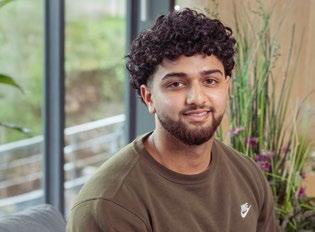
You will complete three examinations at the end of the two-year course. These examinations provide your final grade. The practical experiments that you will complete throughout the course will contribute to a practical skills certificate.
Biological molecules
Cells
How organisms exchange substances with their environment
Genetic information, variation, and relationships between organisms
Studying Biology at RSFC has been incredibly rewarding. I’ve enjoyed practical experiments that developed my analytical skills, and the excellent teaching has helped me grasp complex ideas with confidence.
Gazi Naqvi
Energy transfers in and between organisms
How organisms respond to changes in the internal and external environments
Genetics, populations, evolution, and ecosystems
The control of gene expression and gene technologies
College entry requirements apply as detailed on page 27. In addition a grade 6-6 is required in Combined Science or grade 6 in Biology and another science subject. You must also achieve a grade 5 in Mathematics and a grade 4 or above in English Language. In order to study two or more science subjects you will need to achieve at least 7-6 in Combined Science and at least one 7 if studying three separate sciences at GCSE.
Business (BTEC) is one of the most exciting subjects you can choose! Business (BTEC) includes real-life case studies where you will explore and critically review the live functional areas in companies such as McDonald’s, Nike and Starbucks. You will develop into a resilient, determined and capable individual with an entrepreneurial spirit. By the end of the course, you will be employment ready and fully equipped with the tools to thrive in public, voluntary or private sector organisations.
Within this subject, you will gain a sense of direction for your future career in areas such as law, marketing and finance. You will be equipped with a range of knowledge from exploring real-life cases to visiting active, thriving businesses, and gaining an insight from experienced business professionals who visit the college. You will also take part in a work placement to gain real-life experience.
If you enjoy completing projects, working in teams, preparing business presentations, and taking a more practical approach to your studies, this subject is for you.
Business (BTEC) will allow you to develop a real understanding of what is involved, both theoretically and practically, in becoming an effective business professional. You will develop an in-depth understanding of the topics covered on the course.
You could go on to gain a role in a small or large organisation, start your own business or become a specialist in a particular area such as: marketing and advertising, finance and accounting, retail and sales, personnel development, or administration. Alternatively, the course offers a wide range of future opportunities through both university and apprenticeship programmes.
This course is assessed through a variety of coursework projects and examinations. There are eight units, five of which are internally assessed and three of which are external assessments.



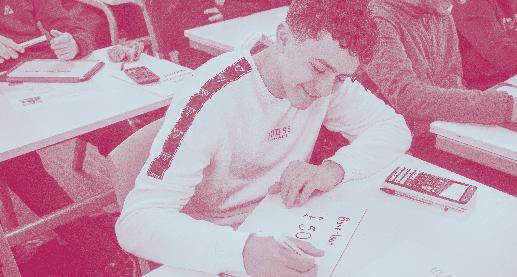

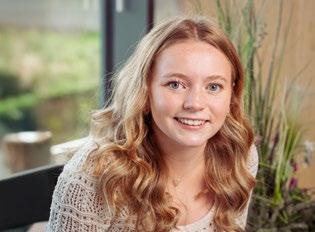
Unit 1: Exploring business (Coursework)
Unit 2: Developing a marketing campaign (Controlled assessment)
Unit 3: Personal and business finance (Examination unit)
Unit 8: Recruitment and selection process (Coursework)
Studying BTEC Business has been an amazing experience. I really enjoyed exploring areas such as marketing, finance, and international business, and completing coursework in my own time was a real benefit.
Lucy Hanson
Unit 4: Managing an event (Coursework)
Unit 6: Principles of management (Controlled assessment)
Unit 5: International business (Coursework)
Unit 16: Visual merchandising (Coursework)
College entry requirements apply as detailed on page 27. In addition, a grade 4 is required in GCSE Mathematics.
Business will enable you to uncover the truth behind the decisions made by businesses and the impact that these decisions have in the four key areas of: marketing, production, human resources and finance. We take an in-depth look at real-life business examples, from world leaders such as Adidas and Patagonia to small local businesses, analysing the impact of their choices and predicting the likely outcomes.
From day one, A level Business will help you develop a critical mind to assess key business decisions. You will be trained in how to become an effective Business Consultant advising businesses on how to juggle the conflicts between a range of stakeholders to ultimately ensure that they are successful. You will learn about the fine margins between success and failure and all the factors at play.
If you are interested in business and can see yourself one day working within a large organisation, or you are interested in starting up and running your own business, this is the subject for you.
You will expand your understanding of how and why business decisions are made and how businesses respond strategically to the challenges they face. You will also study the major issues affecting people today such as the impact of the cost of living crisis and strike action.
Business leads to a very wide variety of university courses, especially in areas such as Business, Economics, Management, Retailing, Enterprise, Finance, Accountancy and Administration. It is a very useful starting point for careers in the business world.
You will complete three examinations at the end of the two-year course.
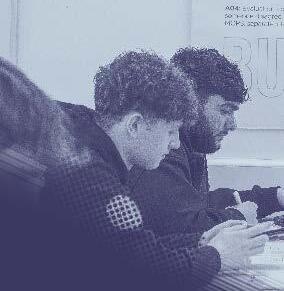
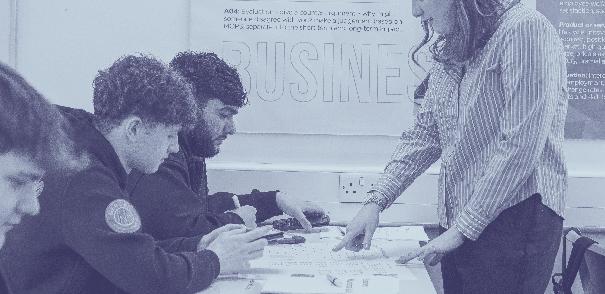



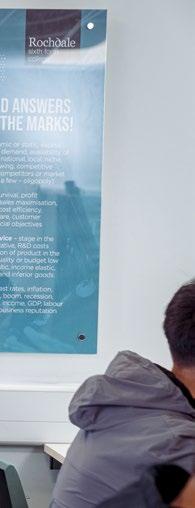
What our students say:
A level Business helped me understand marketing and finance. Learning how businesses operate and manage challenges like liquidity has expanded my knowledge and made the subject both engaging and relevant.
Abhijeet Das
Introduction to Business: Discover how to get a business idea off the ground by exploring essential foundational topics such as:
Market research and positioning
Research and development
Break-even and cash flow
Sources of finance
Business ownership
Business growth: Find out how a business develops from a local to regional to national brand by exploring topics such as:
Economies of scale
Price elasticity of demand
Leadership and culture
International Business: Assess the implications, and methods, of international growth by investigating topics such as:
Protectionism
Globalisation
Exchange rates
Political stability and corruption
Emerging markets
College entry requirements apply as detailed on page 27.



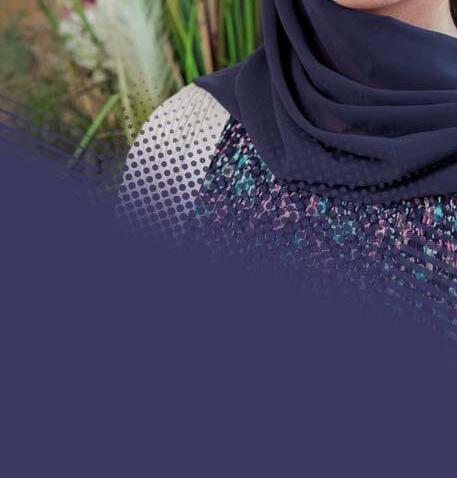

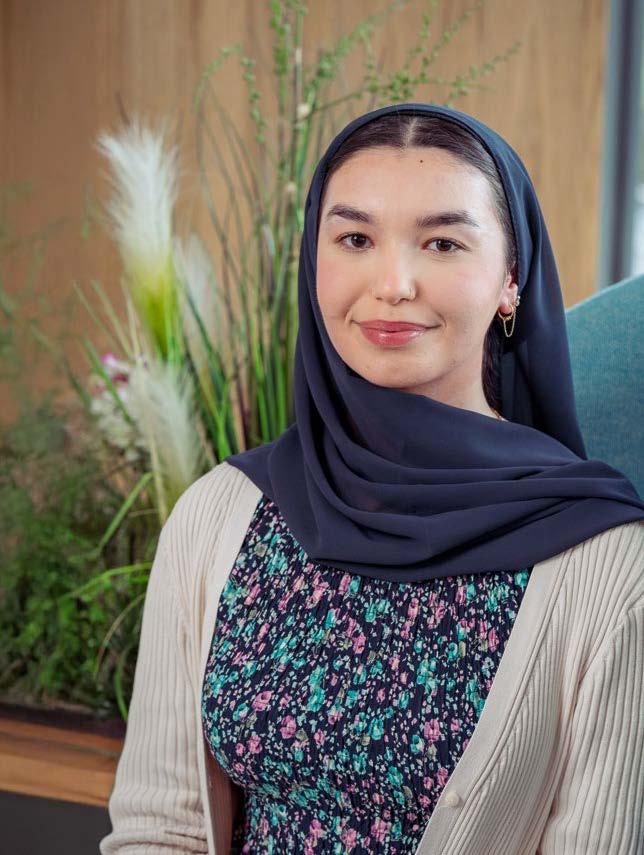


University of
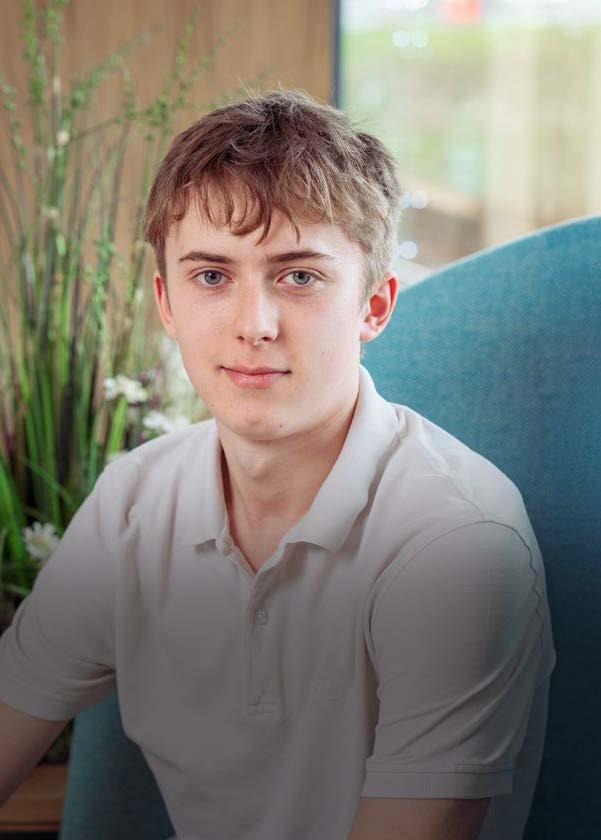




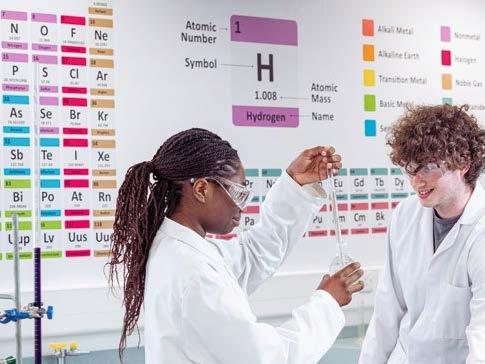
Chemistry is the study of matter, its properties, and how and why substances combine or separate to form other substances. It also involves the study of how these substances interact with energy.
You will develop your skills in problemsolving, analysis and the ability to understand and analyse complex data and abstract concepts. You will cultivate a vast range of skills that are transferable to further study and employment.
If you have an interest in science and a desire to develop a greater understanding of how physical sciences shape the world around us, then Chemistry is the subject for you.
The Chemistry course is split into two main sections: physical chemistry and organic chemistry.

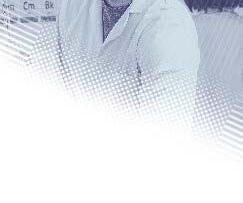

In physical chemistry there is a strong mathematical focus as you develop an understanding of quantities of atoms and energy. In organic chemistry you will learn how to synthesise many of the molecules we encounter in everyday life.
Chemistry is either required or strongly recommended for many degree courses, such as Medicine, Pharmacy, Dentistry, Engineering and Veterinary Medicine. Many students wishing to study Law at university or become an Accountant may also choose to study Chemistry as it demonstrates the ability to cope with challenging concepts.
You will complete three examinations at the end of the two-year course. These examinations provide your final grade. The practical experiments that you will complete throughout the course will contribute to a practical skills certificate.


Bonding: You will learn about how different types of atoms form different structures. These differences explain the different properties of materials we use day-to-day
Amount of substance: The mathematical core of chemistry that will enable you to calculate the quantities of reactants and products in a reaction
Organic chemistry: You will take your first steps into the vast array of different molecules and reactions that all have carbon in their structure
What our students say:
Chemistry at RSFC is both hands-on and intellectually engaging. The practical work brings theory to life, and the teachers make complex topics much more accessible through their support and encouragement.
Stephanie Balolong
Acids and bases: You will study and experiment with different types of acid and learn how to make a buffer solution
Transition metals: These precious elements have a colourful chemistry of their own. Discover the origins of their properties and their uses
Organic chemistry: Discover the chemistry that underlies the make-up of life by studying condensation polymers, amino acids and DNA
College entry requirements apply as detailed on page 27. In addition, a grade 6-6 or above is required in GCSE Combined Science, or grade 6 in Chemistry and another science subject. You must also achieve a grade 5 or above in GCSE Mathematics and a grade 4 or above in English Language. In order to study two or more science subjects you will need to achieve at least 7-6 in Combined Science and at least one 7 if studying three separate sciences at GCSE.
Computer Science is an exciting, innovative and creative subject, with far-reaching effects and benefits to society, commerce, health and engineering. The most important aspect of Computer Science is problemsolving and the study of computers and computational systems; this includes their theory, design, development and application in solving problems. Principle areas of study within Computer Science include artificial intelligence, computer systems and networks, cybersecurity, database systems, human computer interaction, vision and graphics, numerical analysis, programming, software engineering, bioinformatics and theory of computing.
Computer Science is a subject that is constantly developing day-to-day; you will learn new things about technology and its impact on you and the wider world. Whether it is the prospect of self-driving cars, the rise of artificial intelligence or the latest cybersecurity breach, studying Computer Science at RSFC will effectively prepare you for further study in the world of computing as well as helping you to develop a range of transferable skills that will support you in progression to a variety of courses and roles.


If you enjoy problem-solving, mathematics, are a logical thinker and passionate about new technologies then this is the course for you.
You will develop an in-depth understanding of Computer Science theory and expand your practical skills in both the use of software and programming languages. This subject promotes your analytical, logical and problem-solving skills through the application of your learning to real-world scenarios. You will be given the opportunity to choose your own programming project in which you create a software and hardware solution to a problem or as part of an investigation into an area of Computer Science.
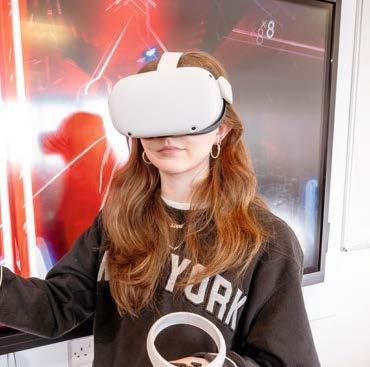



Universities and employers value a good grade in Computer Science at A level since it requires the development of analytical thinking and problem-solving skills. This course also lays an appropriate foundation for further study of Computer Science, Artificial Intelligence, Engineering, Physics, Mathematics, or related courses in higher education. Those students who wish to pursue a career by gaining an apprenticeship will be in a strong position to apply for junior development roles.
Assessment is through two examinations worth 40% each and one non-exam-based assessment worth 20% of your final grade.
Year 1
Fundamentals of programming
Fundamentals of data structures
Fundamentals of algorithms
Studying Computer Science at RSFC has been insightful and enjoyable. The supportive teachers and peers have helped me build confidence and develop valuable problem-solving and coding skills.
Xuanming Guo
Theory of computation
Fundamentals of data representation
Fundamentals of databases
Fundamentals of computer systems
Fundamentals of computer organisation and architecture
Consequences of uses of computers
Fundamentals of communication and networks
Big data
Fundamentals of functional programming
The computing practical project (of your choice)
College entry requirements apply as detailed on page 27. In addition, a grade 5 or above is required in GCSE Mathematics. If Computer Science is studied at GCSE, a grade 5 or above in GCSE Computer Science with a grade 4 or above in Mathematics is required.

Drama & Theatre combines the study of practical performance with the history and social context of theatre. It is the study of a range of practitioners and acting styles, as well as reading and analysing plays. It also includes learning about stage-craft and stage management skills in set design, lighting and sound.
Studying this subject will enable you to explore the history and social context of theatre and play texts. It will challenge you practically and academically and you will develop your own performance skills, which can be transferred to a variety of career paths and opportunities.
If you enjoy analysing texts and exploring social and human interactions, then you will thrive on this course.
Drama & Theatre is an exciting, engaging course with a huge amount of opportunities to step outside of your comfort zone. You can expect to be treated as a professional actor and enjoy learning about the performing arts industry and the context of producing a successful play. In addition you will develop your analysis and inference of the texts.
Drama & Theatre will help you to access a wide range of positions within the professional theatre industry, such as acting, designing, directing and stage-management. As well as this, past students have gone on to gain positions in drama teaching and educational outreach theatre work. Skills developed in Drama are highly sought-after attributes in the workplace and can help you stand out in university applications. Some recent students have progressed to Oxford University to study English as well as other top institutions such as the University of Central Lancashire to study Law.



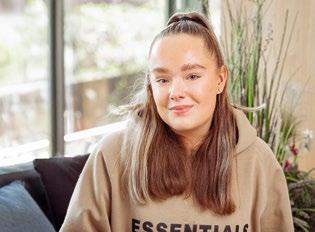
IN YEAR 1:
Component 1 : Devising (40% of the qualification) is assessed via one practical group piece where you are marked as an individual actor, and one piece of written coursework.
IN YEAR 2:
Component 2 : Text in Performance (20% of the qualification) is assessed via the performance of two scripted texts marked by an external examiner.
Component 3 : Theatre Makers in Practice (40% of the qualification) is a written exam at the end of the course where you will show evidence of analysing plays and writing from a performer, designer and director’s point of view.
Year 1
You will participate in a range of teacher-led workshops starting with the basics of how to transform yourself into a different person through the use of voice and physicality.
What our students say:
Choosing Drama was the best decision I made. The teachers are supportive, the course is creative and confidence-boosting, and I’ve really grown as a performer and team player.
Emma Dunkerley
You will also learn to devise your own piece of theatre in a particular practitioner style and create your own story in a group inspired by a stimulus. You will use this piece as a basis to write your coursework.
2
You will study two different scripted pieces and perform these to an external examiner. You will go to watch a professional performance and use this to write an evaluation as part of your final written exam. You will also study two plays and analyse these in your exam, taking on the role of a performer, designer and director.
College entry requirements apply as detailed on page 27. In addition, a grade 4/pass or above is required in GCSE/BTEC Drama or Performing Arts along with a grade 4 or above in English Language.
There are two broad areas within Economics: Firstly, microeconomics looks at the choices and behaviour of different economic agents such as consumers and firms and how they respond to incentives, including ways in which governments can alter those incentives to change behaviour. Secondly, macroeconomics looks at many of the big issues that dominate news coverage of economics such as the threat of recession and rising unemployment, the drive for greater economic growth, or the impact of the rising cost of living.
In addition to providing the knowledge to help you understand a complicated world, this subject enables you to develop a wide range of skills highly sought after by universities and employers. These include the interpretation and analysis of data, building logical chains of reasoning and developing sound judgement based on available evidence.
If you take an interest in current affairs, you will find Economics challenges your pre-conceptions and encourages you to appreciate differing points of view in light of concrete evidence.
Economics offers you the opportunity to try to make sense of the factors that shape many aspects of our daily lives, from the price of the goods we buy, the taxes we pay, and the jobs that we do, to trends in globalisation and international trade. We’ll look at the ideas of great thinkers (both historic and contemporary) and seek to apply them to real events from the past, present and future.
Successful students would be welcomed onto a wide range of degree courses, in both Economics itself and related subject areas, such as Accountancy and Finance, or Business and Politics. Studies consistently show that Economics graduates are among the highest paid. Career options are varied and include the civil service, banking and finance, marketing, business management and education.
You will complete three examinations at the end of the two-year course, including multiple choice, data response and essay questions.
Year 1
Supply, demand and markets
Market failure and government intervention
Measuring economic performance
Government economic policy
Theory of the firm and market structures
Labour markets
Poverty and inequality
Banking and the financial system
Exchange rates and international trade


I’ve really enjoyed studying Economics at RSFC thanks to the engaging lessons and the opportunity to explore topics that directly relate to the realworld economy. Gaining such relevant and useful knowledge has been both fascinating and rewarding.
Ben Hildreth

College entry requirements apply as detailed on page 27. In addition, a grade 5 or above is required in GCSE Mathematics and a grade 5 or above in GCSE English Language.

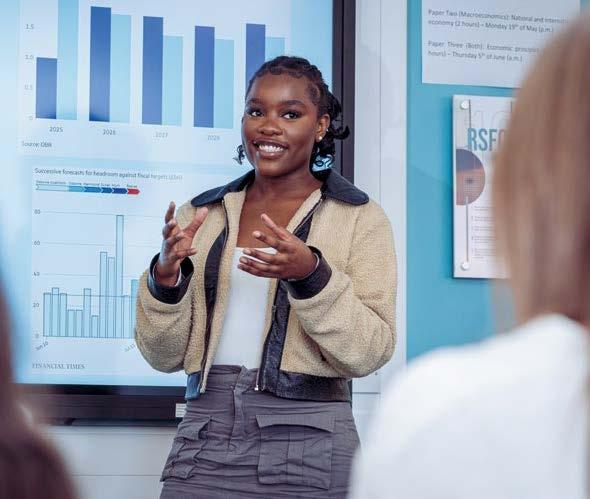
English Language and Literature Combined is the study of all forms of English Language and Literature, from political speeches, blogs, journalism and spoken transcripts, to novels, poetry, and plays. You will analyse how ‘voice’ is developed in a variety of texts from both speech and writing, and will have the chance to produce some creative writing.
English Language and Literature Combined will help you learn and understand the various ways in which we communicate through language, from conversational to formal spoken language, and literature, from fiction to non-fiction texts. Throughout the course you will have the opportunity to explore a variety of interesting written and spoken English. This course will help to develop your critical analysis of spoken and written texts as well as broadening your reading of all types of English. Through the course, your own writing and analysis of English will develop your written expression in both emulating different genres and analysis of how meaning is created.
This course is great for students who like reading all forms and genres of English, from fiction to non-fiction. If you like to decipher how meaning is created and enjoy more modern fiction, then this course is for you.
English Language and Literature Combined is both stimulating and interesting as it allows you a chance to actively engage with texts from different periods and cultures, introduces you to a wide range of spoken and written forms of English, and gives you an opportunity to express your own ideas through creative writing. Your ability to read analytically and with insight will progress as you analyse English in its everyday use as well as in literature, culminating in unseen analysis.
Students who study English Language and Literature Combined have lots of options due to the analytical and written communication skills that are developed.



These skills are transferable to an array of career paths such as law, journalism, film/TV production, advertising and marketing, teaching, politics, public relations and publishing.
There are two examinations that are worth 80%:
Paper 1 : Voices in Speech and Writing: An Anthology and Drama
Paper 2: Varieties in language and literature
There is also coursework, Investigating and Creating Texts, which is worth 20%. The coursework has two pieces of original writing and an analytical commentary on the source texts and your own writing.
Comparing Voices Anthology and unseen texts
The Whitsun Weddings (Phillip Larkin) Coursework
All My Sons (Arthur Miller)
The Great Gatsby (F. Scott Fitzgerald)
Comparing Voices Anthology and unseen texts comparisons
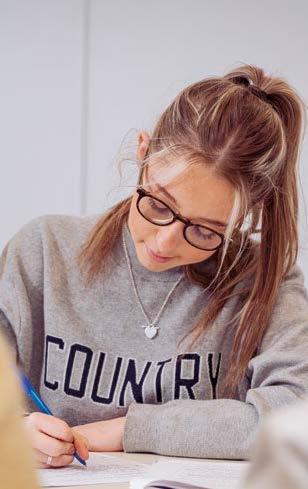


College entry requirements apply as detailed on page 27. In addition, you will need at least a grade 5 in English Language and a grade 4 in English Literature.
English Language is the study of English in its widest sense, from the first words a baby speaks to the most subtle and manipulative advertisements or political speeches. We look at the ways in which writers and speakers change and adapt their language in order to get the reactions that they want from their audience. Language is powerful; it can reveal your gender, your social class, your ethnicity and even your occupation and affect the way others perceive you.
Study English Language to sharpen your analytical and interpretive abilities, and to develop your research skills; you will also improve the quality of your own written and spoken language for a wide range of careers and opportunities.
Anybody interested in a degree or career based in communications or the media, including Law, Public Relations, Journalism, Publishing, Script Writing or Teaching. English Language is also highly valued
by universities for students studying Mathematics, Science, Medicine or Technology and equally for the humanities such as History, Philosophy or Geography.
A great deal of the subject involves analysing language from an incredibly wide range of sources, from London street-gang members to the King; advertisements and social media; formal speeches and jokes; babies and the elderly, to see how they affect their audience and affect the way we see the person producing them. You will be expected to offer your own analyses and interpretations and to be able to make use of the same techniques. We will also spend time looking at the latest theories about, and research into, language issues.
Most of our students progress to university across a very wide range of degree courses, including English, Linguistics, Speech and
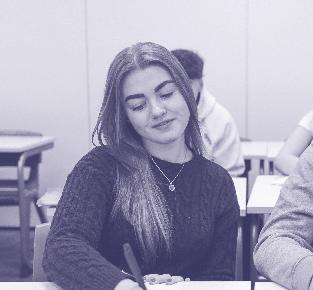

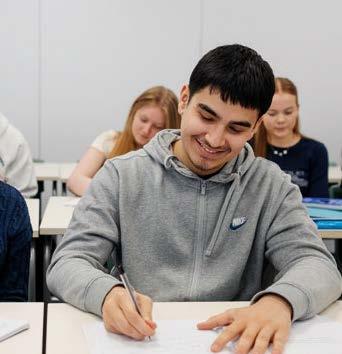

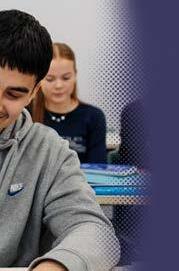

Language Therapy, and Journalism, but a great many find that English Language supports their studies in Medicine, Law, History, Science and Humanities. Others progress into work in fields such as journalism and public relations or onto apprenticeships in fields such as law and the media.
You will complete a coursework project of around 3,000 words and two examinations at the end of the two-year course.
I’ve loved studying English language; it’s my favourite subject and being able to understand how language develops and varies has reinforced my passion for studying linguistics at university.
Edie Sibbald
Creative writing: You will have the chance to produce a piece of writing on a topic of your choice that will count towards your final exam grade.
Language change: What has happened to English in the 1600 years for which it has existed and why did it happen?
Child language development: How do babies go from gurgles to words, sentences to conversations and then move on to reading and writing?


Textual analysis: How do the choices that speakers and writers make affect the way we react to them and their ideas?
Discourse analysis: What does the way in which we speak to and react to other people reveal about our feelings about them and what they have to say?
Language varieties: How does who we are, our gender, class, ethnicity, religion and nationality affect the language we use and how does it affect the views others hold about us?
Language issues: What do people say and think about the language of the young, of slang, of accents? How do such things affect the way we see the people who use them, and is this effect accurate or fair?
College entry requirements apply as detailed on page 27. In addition, a grade 5 or above is required in GCSE English Language.



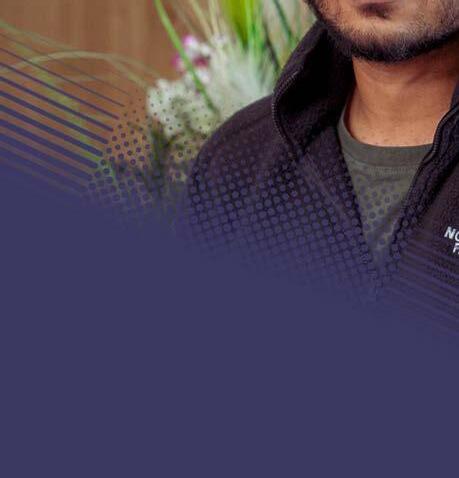



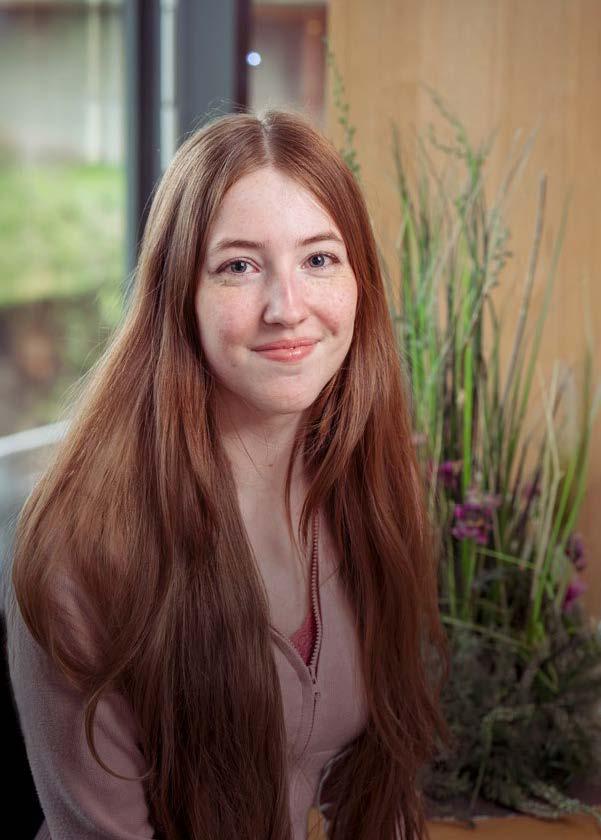

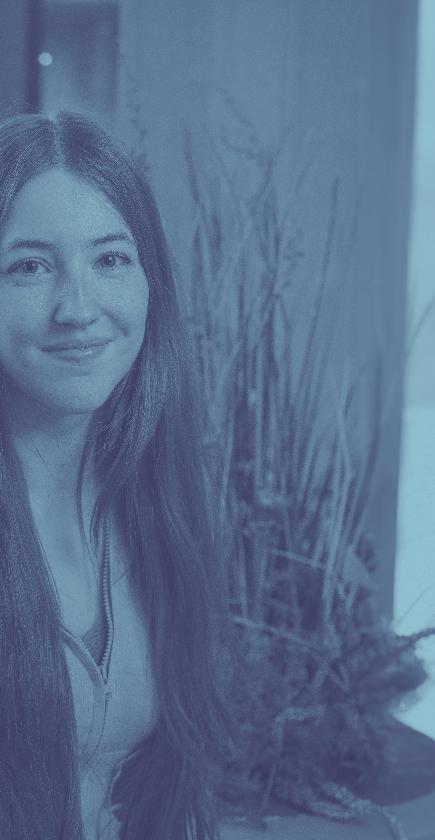


English Literature is the study of the ways in which some of our greatest writers explore the issues that make the world what it is and us who we are. Through literature, we explore the lives of the marginalised and the obscure, and hear voices that need to be heard.
You will develop your skills of interpretation and analysis to an advanced level so that you are able to formulate and express your views and arguments in an effective, authoritative manner. English Literature is an interesting and informative course that will enable you to develop a wide range of transferable skills that are essential for progression to higher education and employment.
If you love to read and talk about books, this is the subject for you.
You can expect English Literature lessons to be lively, thought-provoking and, at times, contentious! You are encouraged to offer your opinions and justify and argue your interpretations with evidence and sound reasoning. You will study a range of novels, plays, poems and other literary forms, exploring the concerns of the people who wrote them, the methods that they use to shape the responses of their readers and the conclusions that we can draw from our reading of them.
English Literature is highly regarded by universities and employers alike and will support your progression to a range of courses and careers. It not only supports those who want to study more obvious subjects such as English, Journalism, Teaching or Creative Writing, but is a massive advantage for a very wide range of demanding degree courses such as Law, Science, Medicine, Foreign Languages, and



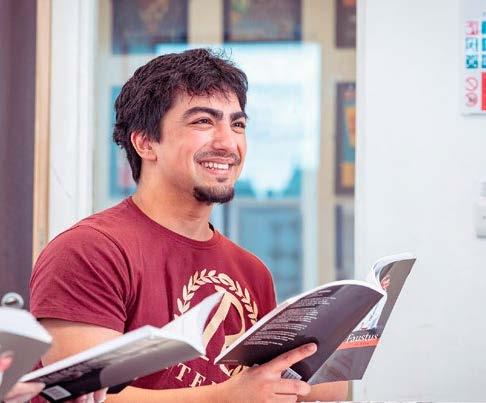

80% of your marks will be from examinations and 20% from coursework.
Year 1
Frankenstein
Never Let Me Go
The poetry of Philip Larkin
Marlowe’s Doctor Faustus
I’ve really enjoyed studying English Literature; the variety of texts, plays, and poetry has been so engaging, and exploring how language evolves has strengthened my passion to pursue linguistics at university.
Josef Pevec-Loft
A collection of unseen poems, and poems from Poetry of the Decade Shakespeare’s Hamlet
The Great Gatsby (and a text of your choosing) for the coursework unit which includes Americanah, Fight Club and The Color Purple
College entry requirements apply as detailed on page 27. In addition, a grade 5 or above is required in GCSE English Language and a grade 4 or above in GCSE English Literature.
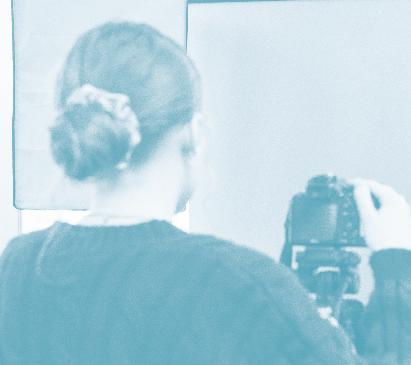
Film Studies is the study of film as an art form, learning to appreciate the medium not only through its technical production, but also by understanding the wider meanings and messages.




Film Studies is an exciting subject that will allow you to study a range of films and gain an insight into the wider industry. You will study the language of film, performance, cinematography, editing and sound, and see how they construct meaning and provoke audience response. You will engage in debates around technology and the issues facing independent cinema. Working with industryleading equipment and editing packages will provide practical experience, allowing you to create a professional portfolio of work to carry forward to university or employment.
If you have a willingness to learn, an interest in the development and production of films and are passionate about developing your knowledge of the film industry, this subject is for you.


Film Studies offers a lively and challenging insight into the film industry and film as an art form. You will be expected to participate in debates and be open to exploring both independent and international cinema. You are expected to analyse key texts and then write about them in your exam. You will also be required to demonstrate creativity with your practical productions.
You will develop a vast range of technical, creative and analytical skills throughout your study. These skills are highly desirable, making you a perfect candidate for a wide range of university degrees, as well as preparing you for a career in areas such as film production, directing, journalism and screenplay writing.
This subject is assessed through a combination of coursework and two external examinations.


During the first year you will study four exciting units including producing a short or screenplay and storyboard:
Component 2 – Section A: Global cinema – City of God & Mustang
Component 1 – Section A: Hollywood 1930-1990 – Casablanca & Bonnie and Clyde
Component 1 – Section C: British cinema since 1995 – Trainspotting & Shaun of the Dead
Component 2 – Section C: Silent cinema – Sunrise
What our students say:
I love Film Studies because it blends creativity with analysis. You learn how films are made and what they mean, which has changed how I see and understand the media.
Mick Devine
During the second year you will engage with some diverse American and British cinema:
Component 1 – Section B: American film since 2005 – Joker & Captain Fantastic
Component 2 – Section B: Documentary – Amy
Component 2 – Section C: Experimental film – Memento
College entry requirements apply as detailed on page 27. In addition a grade 4 or above is required in English Language.
French is undoubtedly one of the major world languages, with more than 300 million people speaking it across five continents. Not only does learning another language enrich the mind, but it also opens new opportunities, both personal and professional. Research has shown that people who are able to speak more than one language significantly increase their employability and earning potential, and this is certainly the case for French with its influence on domains such as cooking, fashion, theatre, the visual arts and architecture, to name but a few.
Learning a foreign language equips you with a wide range of skills valued by employers, including analytical thinking, clear reasoning, cultural and intercultural awareness, strong communication abilities, and the capacity to work effectively as part of a team. Speaking French can even boost your salary by up to 20% and give you a clear advantage over other candidates in the job market.
If you are passionate about languages and curious about other cultures, A level French could be the perfect choice for you. Studying a language at this level will broaden your opportunities in higher education and careers, as well as enrich your travel experiences. By choosing A level French, you will gain valuable linguistic skills that are widely appreciated and can set you apart in the future.
By studying French at A level, you will be exposed to varied sources and authentic French materials such as newspaper articles, videos and literary extracts. You will also discover more about French-speaking culture, which will help you gain a better understanding of the globalised world we live in.
There will be a range of opportunities where you can continue to use and further develop your language skills and knowledge of contemporary society. If you are interested in career paths such as business, diplomacy and foreign relations, travel and tourism, translation and journalism, then French is a great option for you.
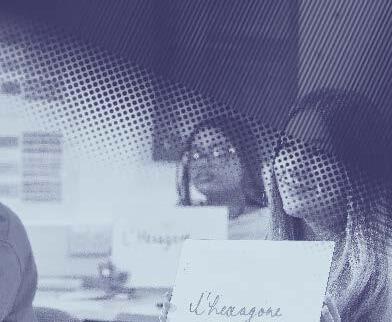

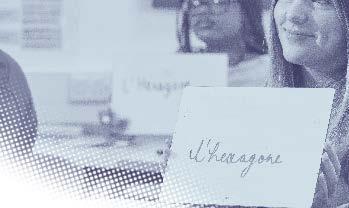
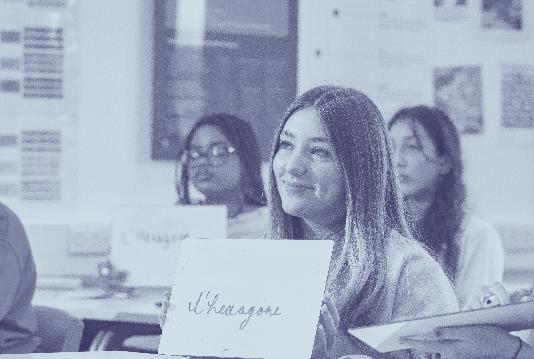
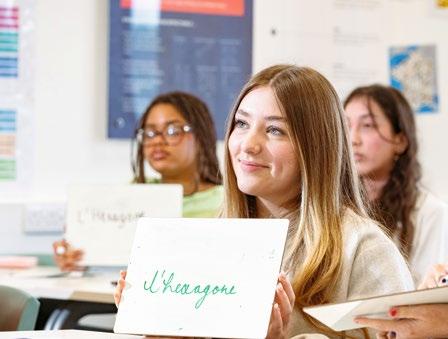

Assessment is through examination at the end of the two-year course. There are three papers:
Paper 1 : Listening, reading and writing (50% of the A level qualification)
Paper 2 : Written response to film and text (20% of the A level qualification)
Paper 3 : Speaking – individual research project and discussion (30% of the A level qualification)
You will build on previous knowledge from GCSE French through the topics of:
Family and how it has evolved in recent years in the French-speaking world
Cyber society
Volunteering
French/French-speaking heritage and how it is celebrated
French/French-speaking music
French/French-speaking cinema
You will also study a French film: Au revoir les enfants
French at RSFC has helped me grow in confidence. I’ve really enjoyed discovering French culture and language, and the supportive environment has made learning so much more enjoyable.
Adriana Koky Kapawa
You will develop critical skills and express your personal opinions through the topics of:
The diversity of French-speaking societies
The life of marginalised people in the French-speaking world
How criminals are treated in the French-speaking world
The political engagement of the French-speaking youth
Demonstrations and strikes in the French-speaking world
Politics and immigration
You will also study a French novel: No et moi
College entry requirements apply as detailed on page 27. In addition, a grade 5 or above is required in GCSE French on the higher tier.
Further Mathematics both broadens and deepens the material covered in A level Mathematics. The content includes real-life applications in the growing world of artificial intelligence and logistics.
An A level in Further Mathematics shows an excellent logical mind, reasoning ability and competence in all things numerate. This subject must be taken in combination with A level Mathematics. If you love Mathematics at high school, enjoy working hard and like to solve puzzles with exact methods and answers, then Mathematics and Further Mathematics offer the opportunity to continue improving your numerical skills and learn a great deal beyond your GCSE course.
If you enjoy learning about mathematical concepts and new methods of problemsolving, and you are doing well in Mathematics at high school then this is the subject for you.
As well as building on topics you are studying in A level Mathematics, there are more branches to explore such as complex numbers, polar coordinates, hyperbolic functions and many more fascinating topics. As well as the additional pure topics, there are new areas of mechanics and decision mathematics. These include collisions, Dijkstra’s algorithm and linear programming.
A level Further Mathematics supports many career pathways – especially those linked to numerical analysis such as careers in mathematics, physics, engineering, data analysis and computer programming to name but a few. It is highly regarded by employers and universities; it shows a fantastic level of mathematical ability, problem-solving skills and logical thought processes. All these lead to you developing your analytical skills, required for most careers.

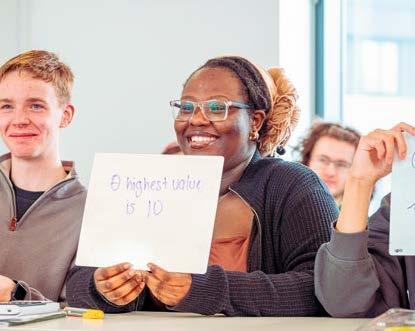
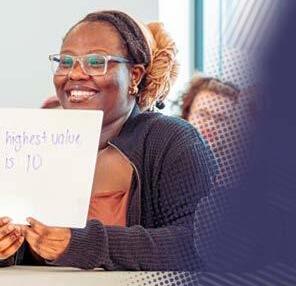

Further Mathematics is assessed through four examinations at the end of your second year. Two of the exams are in core pure mathematics, one in mechanics and one in decision mathematics, each worth 75 marks and one quarter of your final grade.
Further Mathematics can be chosen as a full A level as part of a normal three A level programme. In addition, if you wish to study a three A level programme including Mathematics but not Further Mathematics, Further Mathematics could be considered for study as an AS level in the first year, through the School of Maths programme. On the AS level, you will study a selection of the topics from all the modules listed below.
Year
Core pure mathematics including:
Complex numbers
Matrices
Proof by induction
Summations
Vectors
What our students say:
Further Maths introduced me to new concepts that deepened my passion for the subject. It’s been a challenging but rewarding journey that’s inspired me to study Maths at university.
Ben Harrison
Decision mathematics including: Floyd’s algorithm
Graph theory
Dijkstra’s algorithm
Linear programming
Core pure mathematics including:
Hyperbolic function
Polar coordinates
Further calculus
Second order differential equations
Mechanics including:
Work, energy and power
Strings and springs
Collisions
Restitution
College entry requirements apply as detailed on page 27. In addition, a grade 7 or above is required in GCSE Mathematics. You must also study A level Mathematics.
Geography involves the study of people, places and the interactions that take place between and within them in a range of environments and at a range of scales.
By studying Geography you will develop a genuine in-depth understanding of the world we live in today and the key global, national and local issues affecting our society. Geography is also a subject that develops a wide range of analytical skills that are highly sought after by employers. With the growing importance of issues such as climate change, migration, environmental degradation and inequality, Geography is one of the most relevant courses you could choose to study.
Geography complements all subjects because of the wide range of topics and skills that are developed through the two-year course. If you have genuine curiosity about the world we live in, then Geography is for you.
You will develop an in-depth understanding of classic physical geography topics such as tectonics and coasts; and human geography topics including globalisation, regeneration and migration. Contemporary critical issues are explored in the subject including water scarcity, the nature of energy security, the role of superpowers and issues associated with globally-interconnected societies. A minimum of four days of field work will be completed by all students; this is also when data is collected for your independent investigation coursework.
The subject directly lends itself to a range of university courses across the environmental, social and political spectrum, while also being a highly sought-after qualification in itself by employers due to the interdisciplinary nature of the subject.
Written examinations account for 80% of the overall grade, with coursework accounting for the remaining 20%.
Tectonic processes and hazards
Coastal landscapes and change
Globalisation and globalisation regenerating places
Water cycle and water insecurity
Carbon cycle and energy security
Superpowers Migration, identity and sovereignty

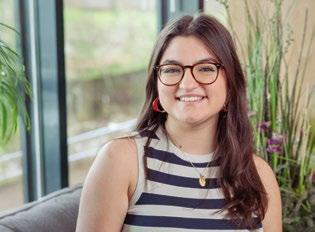
Geography at RSFC has given me a deeper understanding of global issues and the natural world, helping me build both academic knowledge and critical thinking skills.
Christina Dole-Ayuso




College entry requirements apply as detailed on page 27.

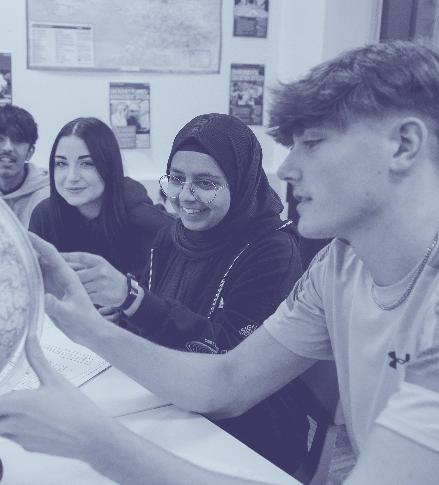

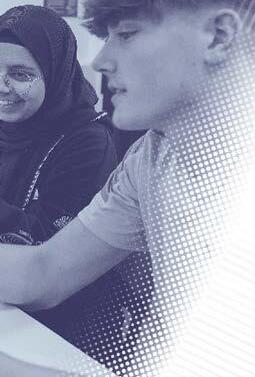
Geology is the study of how the Earth works. We look at its structure, its evolution and its minerals and energy resources. There is a real mixture of both Geography and Science and you will learn about amazing objects such as fossils and some of the most beautiful landscapes in the world.
You will develop both your practical and academic skills in this subject. As a Geology student you will develop an understanding of a range of geological concepts and your ability to apply these concepts and skills to the world around you. You will also take on a range of practical activities including experiments, data collection and map analysis. By studying this subject, you will gain a vast range of transferable skills which will be valuable for employment or further study.
If you enjoy Geography and/or Science and you have a genuine interest in the world around you then this course is for you.
Geology involves a range of practical activities and experiments mixed with the academic study of the Earth, its processes, the changes that have happened and its history.
Over the two years you will rapidly improve your knowledge of minerals, rocks and fossils without needing a prior knowledge of Geology. There will be frequent practical applications of theory, with a full sample of rock, mineral and fossil specimens to observe in the classroom. You will also have opportunities to take part in fieldwork to study some excellent geological formations in the local area and some further afield. This subject also gives you a chance to complete laboratory practicals including the use of microscopes.
You will develop a vast range of practical and written skills in Geology. These skills are highly desirable and will prepare you for a range of university courses or higher level apprenticeships.
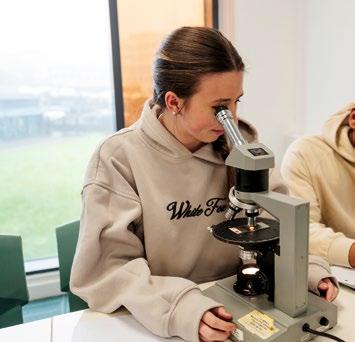

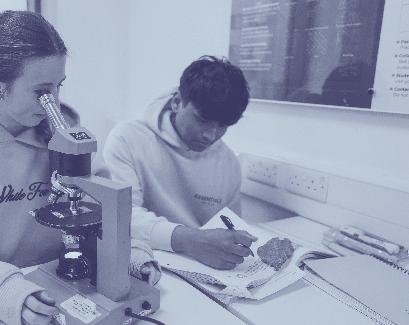
Assessment is through three examinations completed at the end of the two years of study:
Paper 1: Geological investigation
Paper 2: Geological principles and processes
Paper 3: Geological applications
The practical experiments that you will complete throughout the course will contribute to a practical skills certificate.
Elements, minerals and rocks: The fundamentals of Geology.
Surface and internal processes of the rock cycle: A detailed study of the different processes involved in the formation of rocks and an introduction to structural geology.
Time and change: The study of geological processes through time.
Rock forming processes and rock deformation: Looking at the generation and evolution of magma, sedimentary processes and geological structures.
Past life and past climates: The study of fossils and the diversity of life through time and a look at the changes in climate.
Earth materials and natural resources: The study of the geological processes that lead to the concentration and accumulation of natural resources.
Geohazards and geological maps: The study of natural geohazards and their impact on human populations.
College entry requirements apply as detailed on page 27. In addition, a grade 5-5 or above is required in GCSE Combined Science, or grade 5 in two separate sciences.


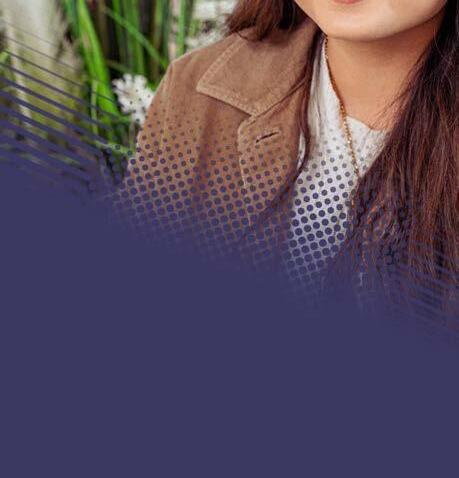





University of Manchester
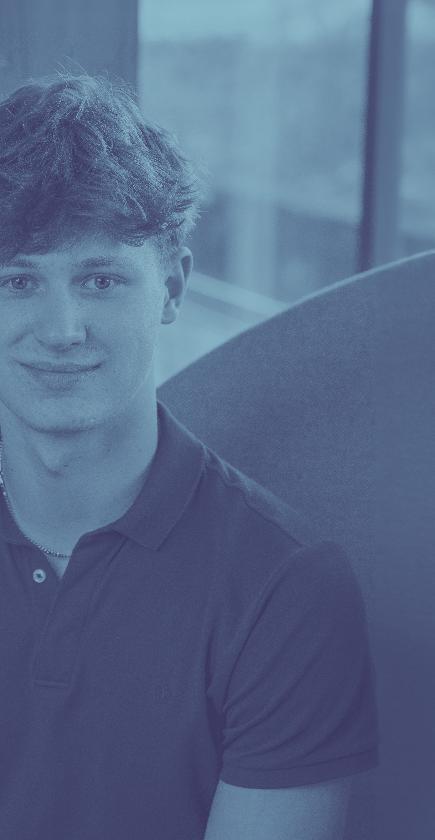


Graphic Design is the study of different art forms such as digital illustration, experimental typography, creative advertising, packaging, editorial fashion and branding. Over your time on the course we will encourage you to experiment while nurturing your personal, imaginative and reflective approach to design.
Graphic Design plays a pivotal role in today’s business landscape. It goes beyond aesthetics and encompasses the underlying principles of effective communication and visual storytelling. You will gain first-hand experience learning about the key stages of the Graphic Design process and all aspects of visual communication.
Graphic Design is ideal for you if you have a flair for communicating ideas in a visual way and are passionate about art, being creative, and working with technology and communication. You will need curiosity, independence, initiative and possess a willingness to develop ideas, investigate, analyse images, and be persistent and hardworking.
Graphic Design is a multi-faceted discipline that encompasses various fields, including typography, colour theory, layout design and digital illustration. You will gain an insight into each of these disciplines and learn how to develop impactful designs.
Studying Graphic Design can lead to degrees such as Graphic Design, Illustration, Animation, Interior Design, and Architecture. This course is highly regarded by the universities as an excellent foundation for study in any design field and can lead to careers in web, motion and TV production, advertising and branding.
Assessment is through a combination of coursework assignments and a 15-hour practical examination. You are required to demonstrate your knowledge, understanding and capabilities through your practical and design work.
You will be assessed on:
Evidence of the techniques we have taught you through the set exercises and short projects
Evidence of your own extended project including research, designing and experimenting Final designs and outcomes


We will support you through a comprehensive framework that includes traditional skills like drawing, photography and printmaking, combined with design principles that explore both 2D and 3D forms. Additionally, you’ll utilise supportive digital applications such as Adobe Creative Suite.
In the first year, you’ll develop creative ideas and basic skills through workshops. You’ll then have the opportunity to tailor your studies to your evolving interests, completing personal projects and professional practice with guidance from tutors and artists, alongside visits to enhance your contextual studies.
In year two, you will undertake a personal practical investigation; a personal written response working to themes of your choice. This will include testing and trialling out a range of ideas before working on a series of final outcomes.
You will also have an externally-set task –a theme set by the exam board. You will develop a project based on the ideas and research associated with your chosen topic.

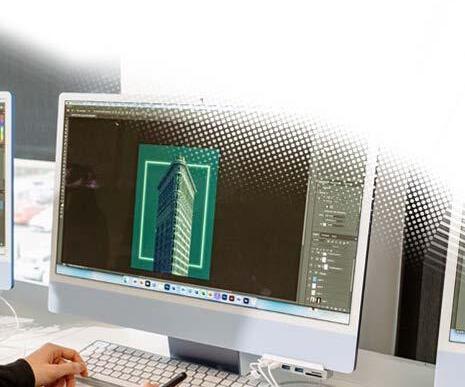



College entry requirements apply as detailed on page 27. In addition, you must also achieve a grade 4 or above in either GCSE Graphics, Photography, Art, a Design Technology subject or obtain a BTEC equivalent. If GCSE or BTEC is not studied, a comprehensive portfolio will be required for assessment by our staff.
This qualification gives you a hands-on and practical way to learn about the health and social care sector. You’ll explore how things work in real life, developing skills you can actually use in practice. Throughout the course, you’ll gain the knowledge and transferable skills you need to move on to university or straight into employment. Your learning will connect directly to real-world settings such as hospitals, care homes, community support services and social work. By the end of the qualification, you’ll not only understand the sector but also have the confidence and experience to start shaping your future in health and social care.
Studying this qualification is a great choice if you’re interested in a future career in health, education, or social services. The course is designed to give you a solid understanding of the sector, while also preparing you for university and professional pathways. What makes it valuable is that it’s not just about learning theory, you’ll get to apply your knowledge to real situations, which helps you build confidence and skills that employers and universities really value. Because the qualification is the same size as one A level, you can study it alongside other subjects, making your programme of study broader and more flexible.
If you have an interest in health and social care, this qualification is designed with you in mind. It’s a great choice if you want to go on to higher education and eventually into a graduate-level career in areas like healthcare, education, or social services. You can study Health & Social Care alongside subjects such as Psychology, Sociology, or Biology, which makes it flexible and a strong fit with your interests.
Studying Health & Social Care will enhance your confidence, build your teamwork and communication skills, and nurture your passion for helping others.
On this course, you’ll explore key areas of Health & Social Care through a curriculum that’s designed to be practical and engaging. Instead of just focusing on theory, you’ll take part in applied learning that helps you build skills you can transfer to future study and work. Your qualification will include a mix of internal and external assessments. That means you’ll show what you’ve learned in different ways, through exams as well as extended coursework, giving you the chance to demonstrate both your knowledge and your ability to apply it to real health and social care situations.

What can I do with a qualification in Health & Social Care (AAQ)?
This qualification opens up lots of exciting opportunities for your future. If you’re thinking about going to university, it can lead to courses such as Nursing, Social Work, Health & Social Care, Primary Education with QTS, or Paramedic Science. It also gives you a strong starting point if you’d like to go straight into work, with roles in healthcare support, social care assistance, or community outreach, where you can make a real difference in people’s lives. Whether you choose higher education or employment, this course will help you build the knowledge, skills, and confidence you need to take your next step.
is the subject assessed?
Students complete three mandatory units:
Unit 1: Human Lifespan and Development –External assessment (90 GLH)
Unit 2: Human Biology and Health –External assessment (90 GLH)
Unit 3: Principles of Health and Social Care –Internal assessment (90 GLH)
Students complete one optional unit:
Unit 5: Promoting Health Education –Internal assessment (90 GLH)
There is a balanced approach to qualification assessment with both the External and Internal assessments accounting for 50% each of the total qualification.
Year 1
Unit 1: Human Lifespan and Development
Unit 5: Promoting Health Education
Year 2
Unit 2: Human Biology and Health

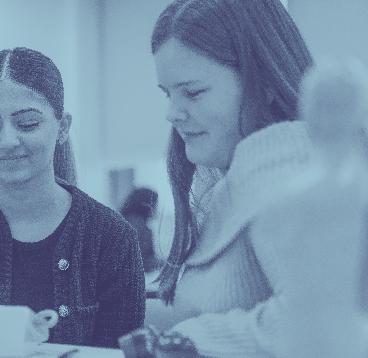
Unit 3: Principles of Health and Social Care
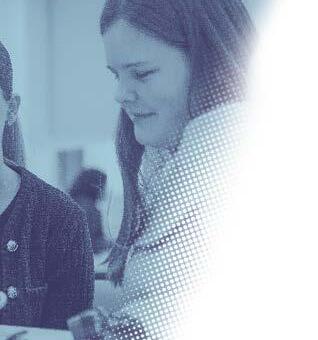
College entry requirements apply as detailed on page 27.
History is the study of the past and has always been about change. Historians examine political, economic, social and cultural issues. It is an academic subject that makes you question why things happened, the consequences, and the way people viewed them.
History is a traditional academic subject that is highly regarded by universities. Top universities recommend History at A level as a way to access a wide variety of more specialist courses as well as valuing it as a subject in its own right.
If you are interested in studying past events and analysing the causes and impact of historical events, A level History is the course for you.
Debating and discussing historical issues is central to the study of this course. You should expect to be able to use the knowledge that you gain to make arguments as to the causes, consequences and significance of the key events studied.
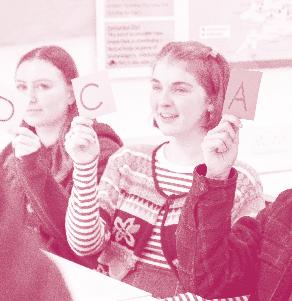
The periods of history studied embrace a range of religious, cultural and political perspectives so an open-minded ability to listen to alternative viewpoints and have a respect for them is essential. Some of the cultural norms studied differ from modern societies so there is a need for an appreciation of how people in the past viewed the world around them.
History is a subject that provides suitable preparation for higher education. As a traditional academic course, History is well regarded by universities and supports an application for many courses, notably English, History, Law, Modern Languages and Politics.
Assessment is through two examinations and coursework, with 20% of your total marks coming from the coursework.


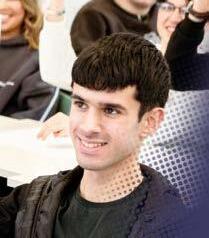
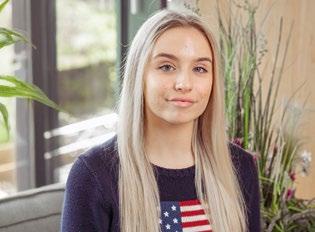
The Age of the Crusades, 1071-1204: What motivated both Christians and Muslims to wage ‘holy war’? Investigate the four crusades and participants, including the zealous Christian Templars, the mysterious Muslim Assassins, as well as the Byzantine remnants of the Roman Empire. The age of the crusades witnessed a staggering clash of cultures and societies where greed and the pursuit of power clashed with sincere religious beliefs on an international stage.
The Wars of the Roses, 1450-1499: Fifteenth-century England witnessed the destruction of the dynasty that had ruled for over 300 years. The Plantagenets were a family divided between the house of Lancaster and the house of York.
A level History at RSFC is engaging and fun. The lessons go beyond the textbook with debates and reenactments, while teaching vital essay and evaluation skills for university.
Emi Booth
From the ‘madness’ of Henry VI, through to the glamour of Edward IV’s court, and the controversial rule of Richard III, one of the most vilified kings in English history, the houses fought for control of England and the support of ‘over-mighty’ nobles. Study the real-life game of thrones and the ascent of the Tudors to power.
American Military Interventions, 1788-2003: (Coursework) The 19th and 20th centuries saw the rise of the United States to the ranks of global superpower. Choose a 100-year period within this timescale and investigate the reasons for American intervention in the affairs of others through conflicts such as the world wars, Korea and Vietnam as well as more recent conflicts such as Kosovo, Afghanistan and Iraq.


College entry requirements apply as detailed on page 27. In addition, a grade 4 or above is required in English Language.
is Information Technology (AAQ)?
This qualification offers an applied and practical approach to studying IT. You’ll explore the fundamentals of IT systems, including how software and hardware work together and the wider implications of using technology in society.
By studying this qualification, you’ll build a strong foundation in Information Technology that prepares you for university or a future career. You’ll get the chance to apply what you learn in real, practical contexts, making this course a great complement to your A levels.
If you’re curious about technology and want to see how it works behind the scenes, or how apps are developed and websites are built, this IT qualification could be the perfect next step for you.
You can also combine this course with subjects you enjoy or want to explore further, such as Business, Maths, Psychology, or Art & Design, depending on your interests and strengths.
What can you expect from Information Technology (AAQ)?
You will engage with four mandatory units that cover key areas of Information Technology. The qualification emphasises applied learning, enabling you to develop practical skills and understanding that are relevant to the IT sector.
can
This qualification prepares you for a wide range of higher education courses in areas such as Business, Information Systems, Cybersecurity, and Computer Science. It also gives you a solid foundation for starting a career in the digital sector.










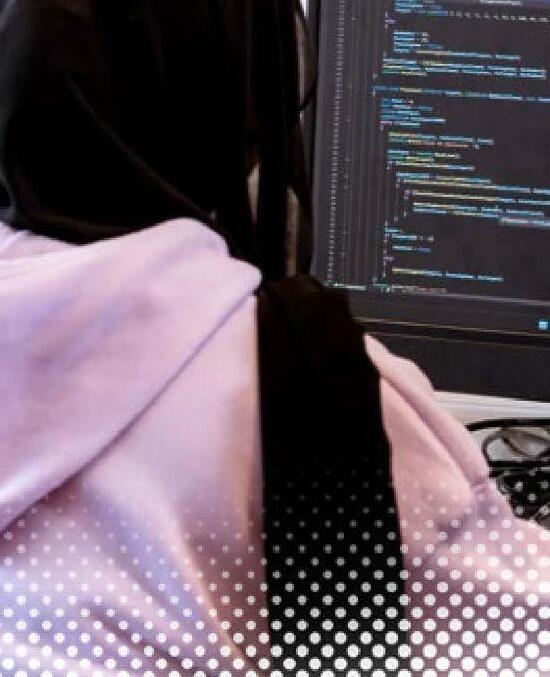
The qualification comprises four mandatory units:
Unit 1: Information Technology Systems –External assessment (120 GLH)
Unit 2: Cyber Security and Incident Management – External assessment (120 GLH)
Unit 3: Website Development –Internal assessment (60 GLH)
Unit 4: Relational Database Development –Internal assessment (60 GLH)
Unit 1: Information Technology Systems
Unit 3: Website Development
Unit 2: Cyber Security and Incident Management
Unit 4: Relational Database Development

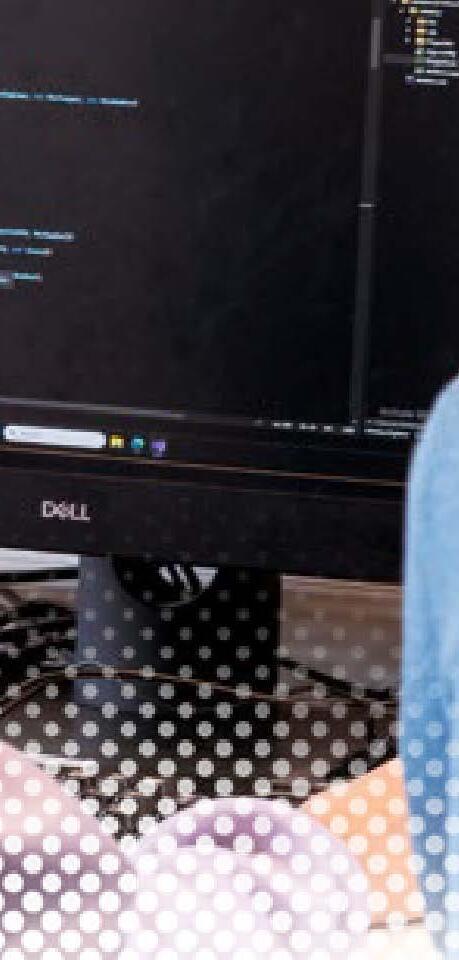
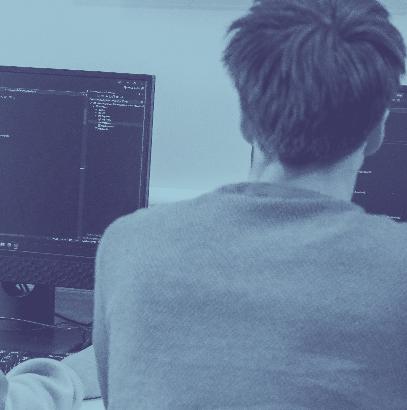

College entry requirements apply as detailed on page 27.


The study of Law analyses the rules and principles that govern our lives. You will look at both criminal and civil law, how our legal system operates as well as evaluating different areas of law.
Law is a ‘live’ subject and impacts us everyday. Not only do you learn about your rights, you will also look at how the law settles disputes in both criminal and civil law. If you have an interest in a legal or professional career, then you will enjoy Law.
A level Law is suited to students who are excited and eager to study new content, enjoy debate and discussion, want to look at how our society is being shaped by the laws around us and have an interest in current affairs. You will cover a lot of content and the subject will challenge you academically, but you will receive an excellent grounding in key legal areas such as criminal, contract and tort law. This will better prepare you for progression to university study or a potential legal or professional career.
If you like a new challenge and are not afraid of hard work, then this is an ideal course for you.
As with all A levels, you must be dedicated to be successful. On this course, you will learn to think like a Lawyer. You should expect fast-paced lessons that cover vast content with many new and exciting legal principles. You must also be prepared to engage with the skills needed for the exam, as it is vital that you have the ability to apply your legal knowledge to factual scenarios and evaluate questions set – just like a Lawyer would. These are essential skills if you are considering a degree in Law.
A level Law puts you in an excellent position to start your journey of becoming a Solicitor, a Barrister or another legal professional. Even if you don’t want to study Law in higher education, the skills you develop on the course, like problem-solving and critical thinking, are sought after by higher education institutions and employers. The range of careers is vast, but some examples include working for the police, the Home Office, and other governmental






There are three examinations in Law. All examinations are equally weighted.
You will learn all about the UK’s legal system and how it functions, as well as how to become a Solicitor or Barrister, which is ideal for those interested in a legal career. You will also cover a mix of both civil and criminal law which will lead to a range of interesting topics and legal problems from murder, burglary and GBH to general defences such as insanity and intoxication.
Studying Law at RSFC has been enjoyable and challenging. The teachers are so supportive, and the structured nature of the subject has prepared me well for future aspirations.
Chloe Stott
The focus will be on civil law (contract and tort), looking at some of the most common and popular legal areas that are practised by Solicitors today. You will learn all about your consumer rights against businesses and areas such as negligence. In addition, you will also study the nature of law and look at issues such as whether we have a legal system that is based on ‘justice’ and whether the law is morally correct. You will look at wider legal issues and develop your evaluative skills.
College entry requirements apply as detailed on page 27. In addition, a grade 4 or above is required in English Language.

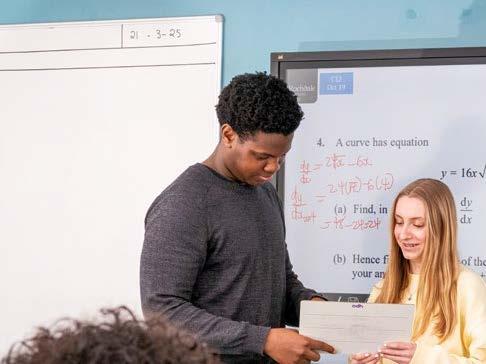
Mathematics explores areas of pure mathematics such as geometry, algebra and trigonometry. It also deepens your knowledge of statistics and probability, considering the application of these in real-life, including learning how to use and analyse a real-world large data set. Mechanics is a new topic to most students; this is the study of how things move and interact with each other.
Employers in all sectors highly value a candidate who can offer mathematical ability. Research has shown those with A level Mathematics, on average, have higher salaries than those without. Mathematics demonstrates you are logical, can reason, have a high level of numeracy, and serves to support many other courses. This offers the opportunity to continue improving your numerical skills and learn a great deal beyond your GCSE course.
If you enjoy learning about mathematical concepts and new methods of problemsolving and have a strong mathematical

ability, then A level Mathematics is for you. Mathematics is for anyone who is keen to keep up their strong numeracy and algebra skills and is a good combination with any other subjects.
As well as building on topics you have studied at school, there are new branches of mathematics to explore, including calculus –differentiation and integration, exponentials and logarithms, and vectors. As well as these pure topics, the applied section, including statistics and mechanics, is new to most students; taught from real-life examples and interpreted back into the real world, it will enable you to develop your analytical and problem-solving skills.
A level Mathematics supports almost all career pathways – from careers in medicine or engineering, to data analysis, economics, computer programming, sciences, and business to name but a few. It is highly regarded by employers and universities and is a sought after qualification.
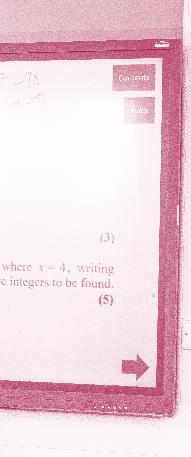

There are three examinations at the end of the second year of study. Two of these are on pure mathematics, worth 100 marks each. The third consists of two papers, one statistics and one mechanics; these are worth 50 marks each.
Year 1
Pure mathematics including:
Trigonometry
Calculus
Vectors
Logarithms
Statistics including:
Probability
Numerical measures
The binomial distribution
Mechanics including:
Constant acceleration
Forces
Units and vectors
A level Maths has been both challenging and enjoyable. I’ve developed my problem-solving and analytical skills, and breaking down complex problems has made the course really rewarding.
Harry Wildman
Pure mathematics including:
Differential equations
Sequences
Numerical methods
Further calculus
Statistics including:
The normal distribution
Correlation and regression
Approximations and hypothesis testing
Mechanics including:
Variable acceleration
Moments
Projectiles
College entry requirements apply as detailed on page 27. In addition, a grade 6 or above is required in GCSE Mathematics.


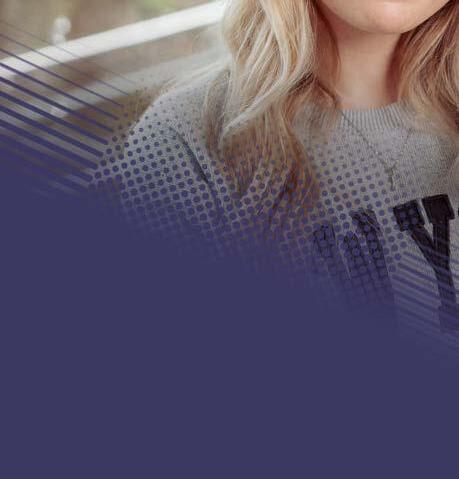

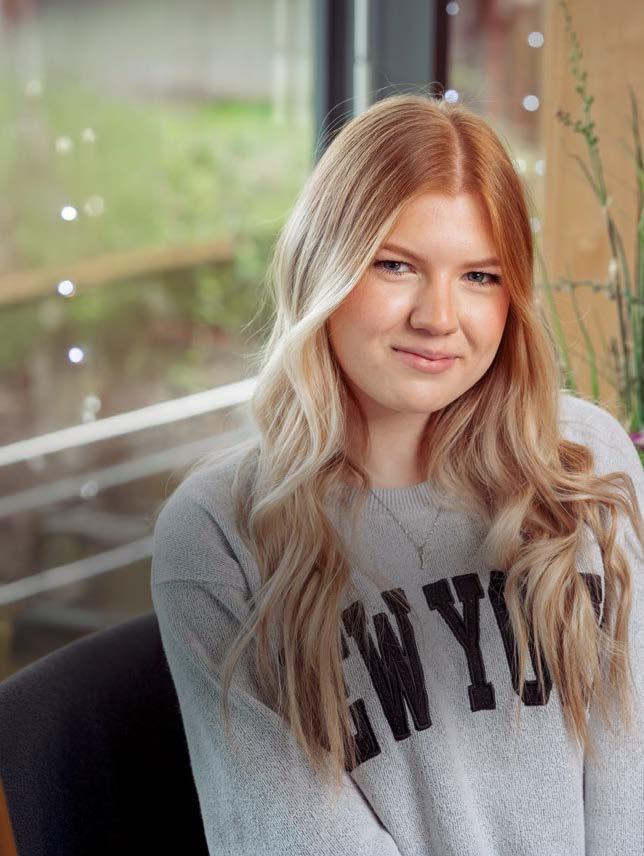

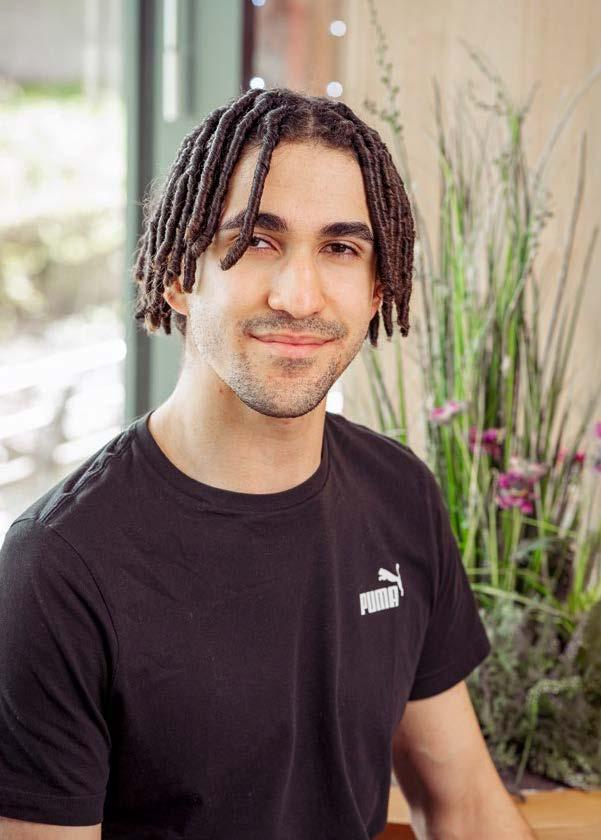




Media Studies is a vast and diverse subject, which includes studying media processes ranging from historical sectors to the ultracontemporary sub-sectors. A level Media Studies will introduce you to many different media outlets and encourages theoretical considerations across all platforms studied. Audience reception, representation, regulation and ownership, and gender theory are just some of the issues you will learn about.
Media is at the forefront of our social and cultural existence and is the digital platform that consumes, shapes and evolves our own personal identities. Studying this A level allows you to delve into subject areas that relate to your personal tastes, choices and lifestyle.
Media Studies is suitable for a wide range of students. You will be expected to think independently and to develop your own voice and will be encouraged to expand your knowledge outside of the classroom through reading and engaging with a wide range of media texts.
A level Media Studies allows you to question the validity of the information you receive on a daily basis and to be aware of bias within the media, so that by the end of the twoyear course you should have an even better understanding of the world we live in. As well as studying existing media, you will have the opportunity to consolidate your learning by creating your own cross-media project. This will help you to develop expertise in professional-standard software, such as Adobe Photoshop.
Media Studies students typically enter careers in the media, cultural and creative industries. Areas of work include television and radio, film and video, digital media, computer games, journalism, writing and publishing, PR and media practice.
This subject is assessed through a combination of coursework and two external examinations.

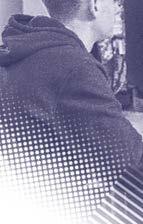
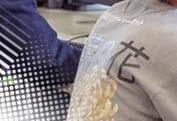
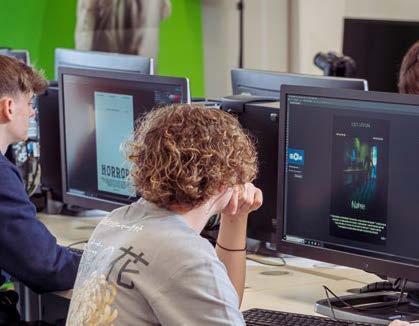

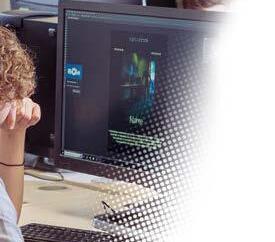
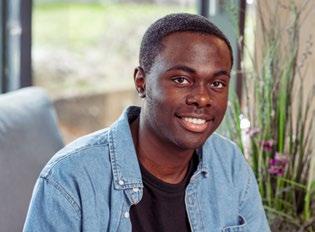
Year 1
Component 1:
Section A: Analysing media language
– Advertising
– Marketing
– Music videos
– Newspapers
Section B: Understanding media industries and audiences
– Radio
– Newspapers
– Films
– Video games
Media Studies is great because it mixes theory with creativity. One minute you’re analysing texts, the next you’re creating them. It’s helped me view the media with a critical eye.
David Kapiamba
Component 2:
Section A: Television in the global age
Section B: Magazines – mainstream and alternative media
Section C: Media in the online age
College entry requirements apply as detailed on page 27.
AAQ Medical Science can be studied alongside AAQ Applied Science and other A levels. The AAQ Medical Science qualification combines theoretical and practical aspects of human health and disease.
You will study in specialist laboratories that are fully equipped with state-of-the-art scientific facilities. The course follows a flexible, unit-based structure that includes both external examinations and internally assessed coursework. You will benefit from a student-centred approach to learning that applies scientific principles to real-world healthcare contexts. Throughout the course, you will develop essential skills including practical laboratory techniques, analytical thinking, and effective communication.
This course is perfect for students who are passionate about human biology, health, and the science behind disease. It is particularly suited to those who are considering a career or further study in healthcare, medical science, or similar fields. The qualification is ideal for learners who prefer continuous assessment and hands-on learning, rather than relying solely on final examinations.
Medical Science covers a wide range of subjects relevant to healthcare and medicine. You will explore key areas including human physiology, anatomy, pathology, microbiology, and infectious disease. You will also investigate health-related issues and develop scientific communication skills through report writing and data analysis.
As part of the course, you will use industrystandard laboratory equipment and develop techniques that are directly applicable to scientific practice. Assessment will take place through a mix of written examinations, practical investigations, interpretation of scientific data, and production of formal scientific reports.
A qualification in Medical Science provides a strong foundation for university study and employment in a variety of healthcare and biomedical science roles. You may progress to degree courses in Biochemistry, Microbiology, Paramedic Science, Nursing, Radiography, Physiotherapy, Pharmacy, or Biomedical Sciences. You may also choose to pursue healthcare-related apprenticeships or employment in NHS laboratories, research institutions, or private sector scientific organisations. This course is highly regarded by both universities and employers in the science and health sectors.

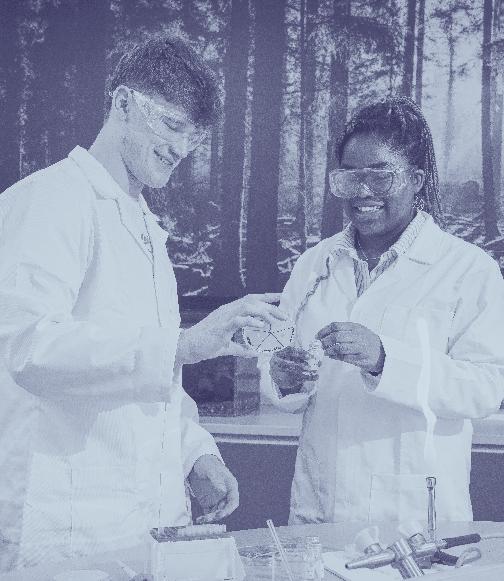
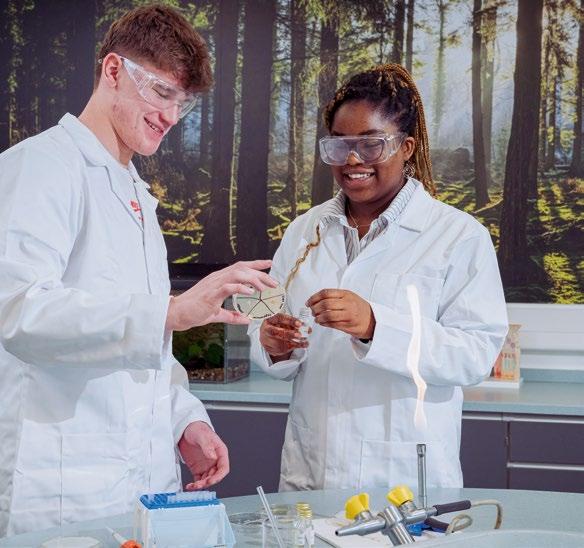
College entry requirements apply as detailed on page 27. In addition a grade 4 in each of the separate sciences. You will also need a grade 4 in GCSE Mathematics, a grade 4 in English Language, and a grade 4 in one additional full GCSE subject.
A level Music is a varied and interesting course that will develop both your theoretical and practical music skills. You will improve your understanding of music theory, as well as gaining the opportunity to use industry-standard software to create your own compositions. As part of your future development, you will have weekly one-to-one tuition on your chosen instrument.
If you are looking to understand the building blocks of music, develop practical musicality, and transform your ability as a composer, then you should study Music at RSFC.
Music is suitable for students who are looking to pursue a career in music or want to increase their knowledge in a subject that they are passionate about.
The subject is also an excellent choice for anyone hoping to work in the creative arts sector.
A level Music is a rigorous course intended for students interested in a well-rounded education of classical and pop, music history and theory. As part of this subject, you will develop sheet music analysis skills, compositional practice, and an appreciation of a wider historical context of music. Instrumental tuition will afford you one-to-one support and encouragement, challenging you to practise pieces between grades 6-8.
A level Music is a broad qualification which creates a range of future opportunities. It will build the foundations required to become a professional musician, an academic specialist in composition or musicology and other roles within the creative arts and media sector.
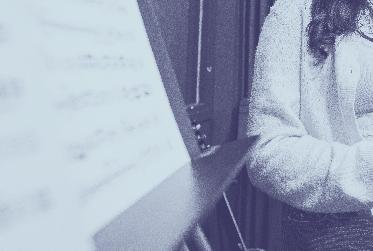

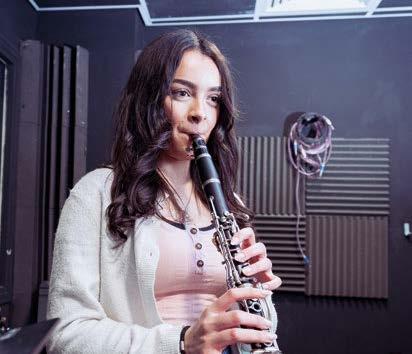




Many students who have studied A level Music at RSFC have subsequently gone on to performance colleges, such as the Royal Northern College of Music, British and Irish Modern Music Institute and Leeds College of Music.
This subject is assessed through a combination of performance, coursework and external examinations. You will complete several mock examinations throughout the course but in your final year you will have one performance assessment and one written assessment. All coursework will be submitted in your final year.
Studying Music at RSFC has been fantastic. I’ve gained valuable practical and theoretical skills, grown in confidence, and seen real progress in areas I once found challenging.
Tom Reynolds
In the first year, you will study music and compositional theory, alongside historical developments in the symphony (1750-1900), as well as the rock and pop genre (1960-2000). You will also develop song writing and composition skills.
In the second year, you will consolidate your knowledge from the first year and learn about 20th century classical music, as well as producing classical composition set by the examining body. You will undertake performance and written examinations and submit all of your coursework for the two-year period.
College entry requirements apply as detailed on page 27. In addition, a grade 5 or above is required in GCSE Music or BTEC equivalent and a grade 5 or above on a musical instrument.

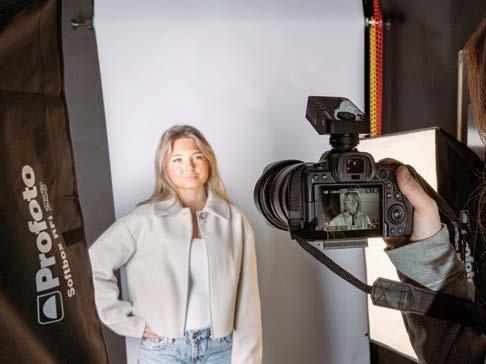
Throughout this creative course you will explore the full range of photographic practice and techniques, from how to compose the perfect shot to how the post-editing process can bring your images to life. A level Photography will help you produce work to a professional standard that can be used in a portfolio which will be exhibited in an end-of-year show.




You will need curiosity, independence and initiative, and possess a willingness to develop ideas, investigate, analyse images and be persistent and hardworking.
As an A level Photography student you will explore various techniques and styles by taking and editing photographs, expanding your creative horizons. You are encouraged to contextualise your work within broader cultural and historical frameworks, fostering a deeper appreciation for photography’s artistry and its role in industries like advertising, media and fashion. This holistic approach provides insights into how photography shapes contemporary visual culture.
This subject is suitable for those who have a keen eye for composition and capturing moments.
During the course, you will visit local and national galleries and exhibitions. Classes are held in a specialised room with Apple computers and access to a darkroom. We provide essential materials, including digital SLR cameras. This A level offers workshops with local artists and university lecturers to enhance your photography skills.
There are many aspects of photography you could consider such as fashion, product, documentary or post-production photography – or even running your own studio. You may also wish to progress on to a Photography or an Art and Design based degree. This is a highly valued qualification that can also support a wide range of careers where photographic skills are an asset, such as journalism or marketing.

Assessment is through a combination of coursework assignments and a controlled examination, including digital portfolio work and a final outcome.
In year 12, you’ll join mini-workshops on themes like architecture, product photography, natural forms, portraiture, street photography, and narrative, introducing you to various photographic genres.
You’ll gain hands-on experience with equipment, techniques and software, developing skills for high-quality work and refining your artistic vision.
By year 13, you’ll be ready for independent, creative final projects, culminating in a comprehensive portfolio.
Component 1: Personal Investigation (60%). You will create assessed responses based on themes agreed with your teacher. Your personal study includes a 1,000-word written communication with research, making up 12% of the qualification.
Component 2: Externally Set Examination (40%). You will complete a project from a title set by the exam board, followed by a 15-hour controlled assessment. This involves developing ideas, experimenting with techniques, and producing a final piece, showcasing your skills and creativity.
College entry requirements apply as detailed on page 27. In addition, you must also achieve a grade 4 or above in either GCSE Photography, Art, Graphics or a Design Technology subject or obtain a BTEC equivalent. If GCSE or BTEC is not studied a comprehensive portfolio will be required for assessment by our staff.
A level Physical Education (PE) aims to provide you with an understanding of a range of topics that impact on peak athletic performance. These range from using learning theories to explain how performers learn skills, looking at how anxiety and arousal affect novice and elite performers, through to an in-depth review of how the body and mind work before, during and after performance. In your second year you will undertake an assessment in a physical activity as part of your non-examined assessment.
With the three main disciplines of many sports-related degrees being physiology, psychology and biomechanics, A level PE aims to help students apply these principles to their own performance and elite athletes’ performances. As well as developing an outstanding knowledge of PE, you will gain numerous analytical and evaluative skills that are highly sought after at university and for future employment.
If you enjoy sport, want to learn more about the science behind sport, and have a desire to progress onto degree-level study in the field of Sport and Exercise, this course is for you.
You can expect engaging lessons, predominantly in the classroom, that give you an excellent understanding of the founding principles of sports science: physiology, psychology and biomechanics. You will also delve into the effects of modern-day technology on athletes’ performances, from VAR to assist officials, to enhancements in drugs such as anabolic steroids and EPO. You will leave as a well-rounded student with an expansive knowledge of issues and processes that impact athletes’ performances.
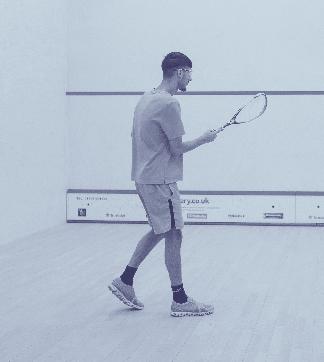

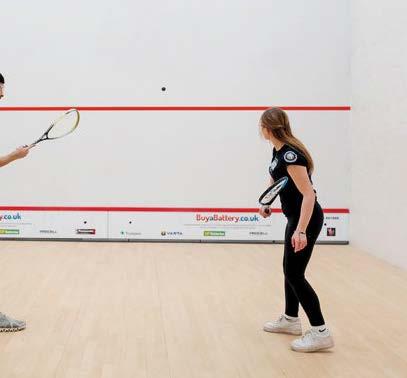





Achieving an A level in PE puts you in a great position to progress onto sportsrelated degrees, such as Sport and Exercise Science, Physiotherapy, Strength and Conditioning, and Nutrition and Dietetics. Although these degrees are specifically related to the subject, the skills you will learn on this course are beneficial when progressing onto any degree course. With the skills also being highly regarded by many employers, it positions you well for a range of careers.
This subject is assessed through a combination of coursework and two external examinations.
PE at RSFC allowed me to explore sport in-depth – from biomechanics to the history of sport. It’s been an exciting and informative subject that’s broadened my knowledge.
Ava Hayden
Year 1
Skill acquisition
Physiology
Sports psychology
YEAR 2
Movement analysis and biomechanics
Sport and society
Improving personal performance (Coursework)
College entry requirements apply as detailed on page 27. In addition, you must play a sport at a competitive level.
Physics is about questioning how the world around us works and looking for answers through a combination of experiments and theoretical work. Physics is used to answer some of our most fundamental questions relating to our origins and existence. It is a mathematical course, using formulae and logic to solve problems, predict events and describe observable phenomenon.
Physics enables you to apply models and formulae to understand the key concepts behind everyday things. For example, building structures such as bridges, looking at the electronic components used within modern technology, how subatomic particles interact with each other and the fundamental forces of the universe that act as the building blocks of life.
There is a lot of new terminology to learn, so independent study skills and a good level of motivation are vital. If you enjoy Mathematics and Physics at GCSE and like to see a real world application of your skills, Physics is the subject for you.
You will challenge your ability to use logic and mathematics to solve problems and develop new ideas, and there are many opportunities to fine-tune your practical skills throughout the course. You will learn new terms and theories to support your development, and benefit from external exposure to subject experts and trips that will enhance your understanding.
An A level in Physics is a valuable one and can lead to university degrees in Physics, Mathematics, Engineering, Geography and Medical Science. It shows a high level of numeracy, logic and reasoning, and is desirable for universities and employers. Physics can lead to careers not just in science but in other industries for example, visual effects for films, modelling the economy, journalism and many more.
You will complete three examinations at the end of the two-year course and be assessed throughout the year on your practical skills.
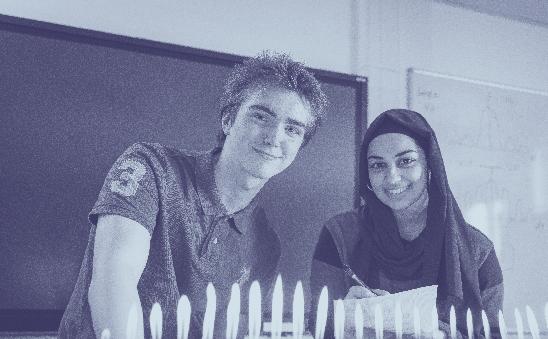

Year 1
Mechanics
Materials
Waves
Basic electricity
Quantum phenomena and particle theory

What
Physics at RSFC deepened my understanding of abstract concepts while teaching me practical skills. The supportive teachers have helped me succeed and apply my knowledge to real-world situations.
Bradley Trickett
Circular motion
Simple harmonic motion
Gravitational, electric and magnetic fields
Capacitance
Thermal physics
Nuclear physics
Astrophysics
College entry requirements apply as detailed on page 27. In addition, a grade 6-6 or above is required in GCSE Combined Science or grade 6 in two separate sciences, along with a grade 6 in GCSE Mathematics and a grade 4 in English Language. Physics students must also study A level Mathematics. In order to study two or more science subjects you will need to achieve at least 7-6 in Combined Science or at least one 7 if studying three separate sciences at GCSE.




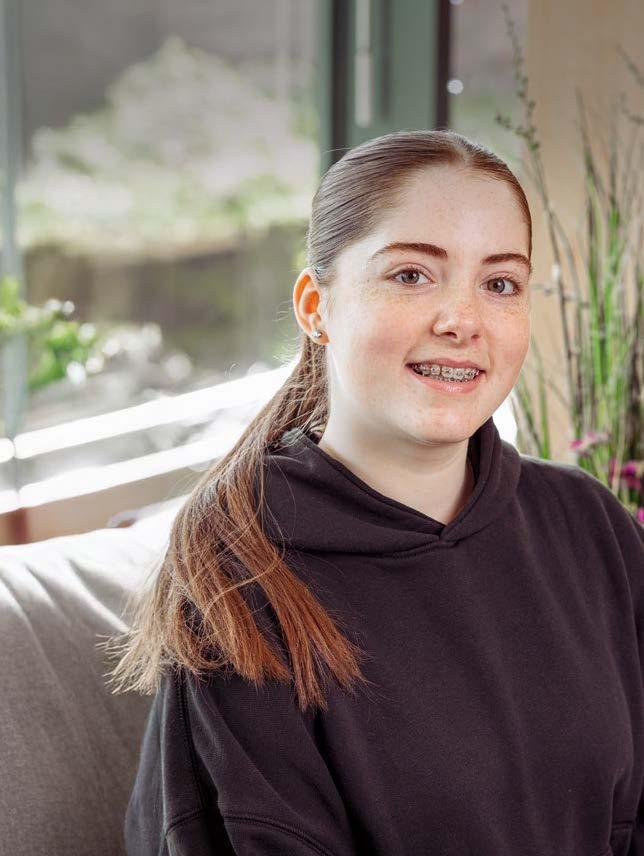



University of Manchester
Computer Science and Mathematics with Industrial Experience (4 years)
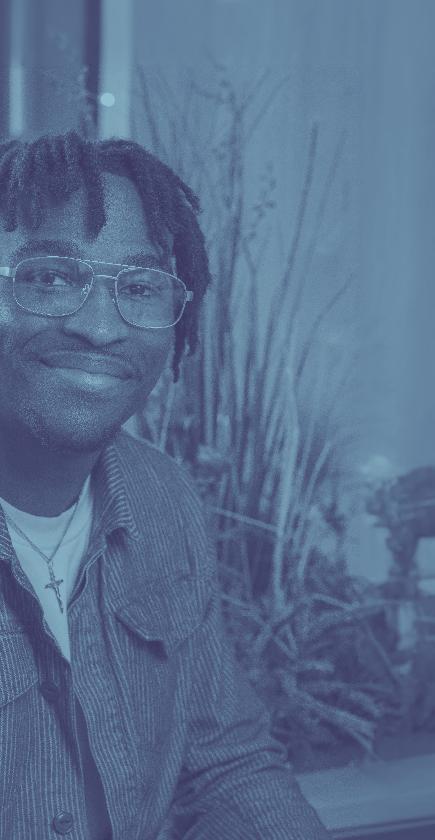


Politics is the study of current affairs and governance, involving discussions around a variety of political issues and debates. Politics is directly relevant in our lives and by studying it you will be enhancing your knowledge and understanding of the world around you and encouraging yourself to become an active citizen. Politics isn’t just about what’s going on in the news, you will also develop a deeper understanding of core ideologies and discover from where politicians derive their beliefs and principles.
Politics gives you the chance to study topics that enhance your understanding of the world today, equipping you with the knowledge to engage in discussion as well as successfully defend your own arguments in extended essays. You will gain vital analytical skills to enable you to tackle an expanding era of ‘fake news’ as well as to become successful in your chosen field. Politics complements an array of subjects such as Law, English, History and Sociology; however, it is also a great contrast for students studying science subjects who want to understand how the UK and US work.
Politics is an exciting and valuable course aimed at those motivated to ‘get involved’ and expand on their knowledge of current affairs and the workings of UK and US democratic systems.
As turbulent as politics has become there has never been a better time to study it. Politics is a captivating subject which continues to evolve, and this means you will be required to keep up-to-date with current affairs, using this knowledge to create persuasive arguments. You should expect to use the knowledge that you gain from the classroom to make arguments about democracy, political participation, government and more. Throughout the course you will refine your initial ideas into well-structured and robust arguments, however, it is also vital that you are prepared to listen to and respect alternative points of view.


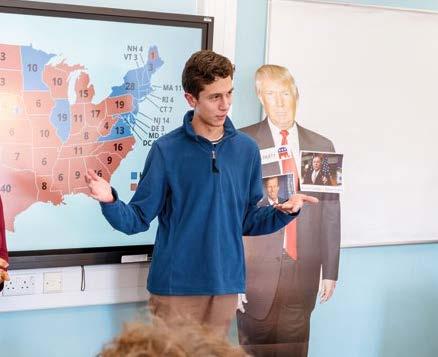

Many of those who study Politics at A level have continued their political studies at university. Whether the subject is enjoyed as an interesting A level or taken to degree level, it can, and often does lead to exciting and diverse careers such as positions in law, the civil service, journalism and careers in the media, the police and teaching.
You will complete examinations at the end of the two-year course. Each paper is made up of essay questions. There are three papers:
Paper 1: UK politics and core political ideas
Paper 2: UK government and non-core political ideas
Paper 3: Comparative politics – with US politics
Politics at RSFC helped me engage with current affairs, boosting my confidence and analytical skills across all subjects through thought-provoking discussions and insightful content.
Mia Dixon
Year 1
Democracy and political participation
Political parties
Voting behaviour and the media
UK Parliament
Prime Minister and the Executive
YEAR 2
US Presidency
US Congress
US Supreme Court
US race relations
College entry requirements apply as detailed on page 27. In addition, a grade 5 or above is required in GCSE English Language.


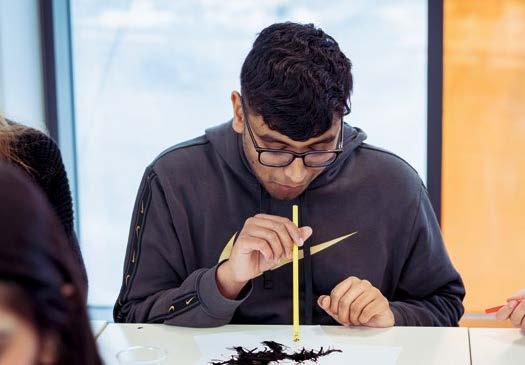
Psychology is the scientific study of the human mind and behaviour, providing a fascinating insight into the reasoning behind our actions. At its core, psychology seeks to understand why we behave the way we do and how our mental processes shape our interactions with the world. It aims to answer the most interesting questions in life: Why do people develop mental illness? What is an addiction? How can we explain addictive behaviour? Would humans obey an authority figure, even if fulfilling their orders would cause harm? You will learn about all this and more and think about how it applies to our everyday lives.
Studying Psychology provides a deep understanding of human behaviour through the exploration of a variety of psychological theories and concepts. The course will not only develop your critical thinking and analysis skills, but will also help you grasp factors that influence our thoughts, emotions and actions. From investigating cognitive processes, to developing an understanding of complex mental health conditions and social behaviours, this course offers
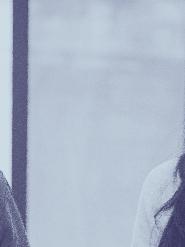

a comprehensive view of human psychology that will equip you with transferable skills that are desirable for a wide variety of university courses and future career pathways.
If you are eager to understand the causes of and motivations for a person’s behaviour, Psychology is the course for you.
Through interactive and engaging lessons, you will develop knowledge of psychological theories and a variety of approaches to explain human behaviour. You will have the opportunity to engage in class discussions, practical experiments and develop your critical analysis skills as you evaluate the value of each psychological theory and its contribution to our understanding of human behaviour. The Psychology department fosters a supportive atmosphere inside and outside of the classroom to help you build the skills and psychological knowledge you will need to be successful on this course. Furthermore, Psychology provides a solid foundation for higher education and future employment opportunities.

Psychology has been fascinating to study. The content gives deep insights into human behaviour, and the supportive teachers genuinely want students to succeed and feel confident in their abilities.

Psychology can help your career either directly or indirectly. Of course, if you wish to become a Psychologist, Therapist or Mental Health Worker, this A level is of direct value. Many Psychology graduates tend to build careers in education, the police, social work and further research. Psychology provides you with life skills that are transferable to any career.
You will complete three examinations at the end of the two-year course. All examinations include a range of multiple choice, short answer and extended writing questions.
Maddie Webster
Year 1
Attachment
Memory
Social influence
Psychopathology
Research methods
YEAR 2
Approaches to explaining behaviour
Biopsychology
Schizophrenia
Addiction
Relationships
College entry requirements apply as detailed on page 27.
Sociology is the study of how society works. It explores how the culture and groups we live in shape and control human behaviour. Sociology investigates the link between media and crime, why people join cults or become terrorists, why education can be damaging to young people and why the rest of the world is becoming more religious while Britain’s religious beliefs decline.
You should study Sociology if you want to question why people behave and think the way they do. For instance, a person’s gender and ethnicity can affect the way they dress, the subjects they pick at school and the roles they perform in the family. This subject will make you more socially aware and help you to think independently and critically about who has power in society, who creates conflict and ask how to solve problems such as poverty and racial discrimination.
Do you have an interest in current affairs or want to work with people who may be disadvantaged in society and want to find ways to improve their situations?
Do you have a critical eye and a thirst for knowledge and answers to key issues in modern society? Then this is the subject for you.
Sociology will leave you questioning everything and everyone around you. It will open your eyes and allow you to look at the world in a way you have never seen it before. In a safe, non-judgemental environment, you will have the opportunity to explore these issues, get involved in debates and develop life skills.
Students with a Sociology A level can enter careers in law, the civil service, teaching, the criminal justice system, journalism, politics, HR and social work. Many of our students go on to study Sociology, Criminology or Law at degree level. The skills developed through completion of the course will be invaluable in higher education and employment.
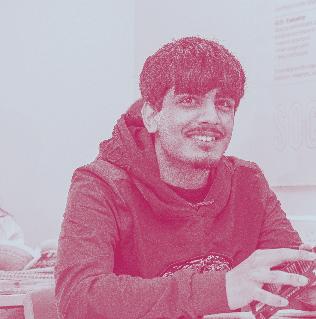

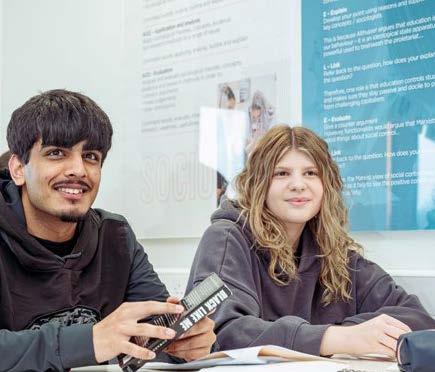

You will be assessed at the end of the two year course through the completion of three examinations.
Year
Paper 1: Education with theory and methods:
Sociological perspectives on the role of education
Differential achievement in education –why do some groups perform better or worse in education?
Educational policies
Research methods
Methods in context
Paper 2: Beliefs in society:
Social groups and levels of religiosity
Sociological perspectives on the role of religion
Religious organisations global context
Secularisation
Science and ideology
Sociology at RSFC is incredibly engaging. There’s loads of support, including booster sessions and exciting trips, making learning both academically and socially rewarding.
Katja
Morton
Paper 2: Families and households:
Sociological perspectives on the role of the family
Family diversity
Family social policies
Domestic division of labour
Childhood
Demography
Paper 3: Crime and deviance with theory and methods:
Theories of crime
Reasons why some social groups commit crimes
Issues in crime such as punishment and victimology
Contemporary issues in crime such as green crime and the media
Debates and theories
College entry requirements apply as detailed on page 27.
Spanish is the second most spoken language in the world with over 400 million native speakers and official status in 21 countries in South, Central and North America, as well as Africa and Europe. Its cultural richness goes hand-in-hand with its potential in the world of work. While Spain is still the UK’s eighth largest goods export market, the real scope for growth is in the emerging countries of Latin America: Argentina, Chile, Colombia and Mexico.
Studying a foreign language teaches you all the skills that employers want in their employees: an analytical mind, strong thought processes, cultural and intercultural awareness, effective communication and the ability to be a valuable team player. Speaking Spanish might increase your salary by as much as 20% and it will give you a head start on any other potential employees.
If you are interested in languages and communication and you enjoy learning about other cultures, then our Spanish
course is for you. Currently, fewer students of your age are studying languages; by taking A level Spanish you will be placing yourself in a distinctive group of people whose linguistic skills will no doubt be highly valued later in life.
This subject will help you to develop your interest and awareness of the Hispanic language and culture. With this A level, you will not only learn how to communicate at a higher level in Spanish, but you will also develop your general study skills. All students are encouraged to take risks and learn from their own mistakes, so step out of your comfort zone and experience the joy of speaking another language.
There will be a range of opportunities open to you where you can continue to use and further develop your language skills and knowledge of contemporary society. Some students choose to study degree courses in languages; others pursue a degree in another subject but choose a language
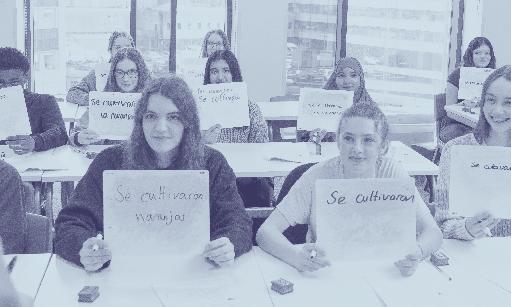
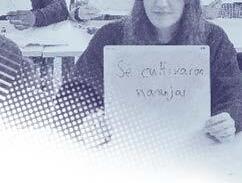
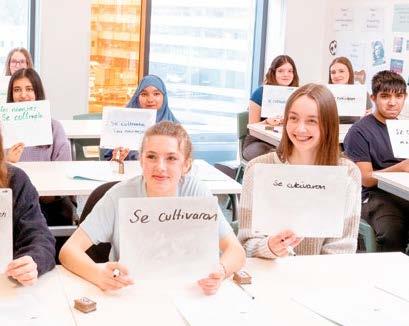
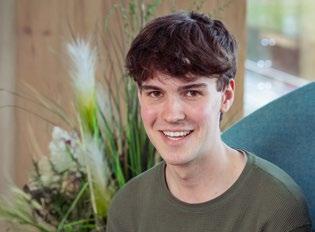
option alongside it. Regardless, if you are interested in career paths such as business, diplomacy and foreign relations, travel and tourism, translation or journalism, learning Spanish is a great option for you.
Assessment is through examination at the end of the two-year course. There are three papers:
Paper 1: Listening, reading and writing (50% of the A level qualification)
Paper 2: Written response to film and text (or two texts) (20% of the A level qualification)
Paper 3: Speaking – individual research project and discussion (30% of the A level qualification)
Year 1
Modern and traditional values in Spanish societies
Gender equality
Influence of cyberspace and modern idols nowadays
Regional identity in Spain and cultural heritage in the Hispanic world
Studying Spanish at RSFC has made me more confident and given me a chance to learn about cultures all across the world in an engaging and insightful way.
Tom Owen
You will also study one cinematographic work: El Laberinto del Fauno
Immigration Racism
Integration across Hispanic societies
Youth as citizens of tomorrow
Monarchies and dictatorships in the Hispanic world and social movements that have changed Spanish-speaking countries
Study of a literary work: La Casa de Bernarda Alba
College entry requirements apply as detailed on page 27. In addition, a grade 5 or above is required in GCSE Spanish on the higher tier.
Statistics is used in all parts of everyday life, from predicting the weather to determining the effectiveness of a new drug. It involves gathering data, making accurate predictions, and assessing the chances of those predictions being wrong. Statistics is now used so widely that many employers would see a qualification in A level Statistics as a huge advantage.
The course provides an excellent overview of many different statistical techniques and how they are applied to real-life contexts. A level Statistics relates to the collection, analysis, interpretation or explanation and presentation of data. This branch of mathematics is used in situations involving variability or uncertainty, such as weather forecasting, finance or assessing the effects of medicines.
Statistics is suitable for anyone who wants to use data to form conclusions. It is heavily relied upon in the field of research. It complements subjects such as Biology, Business, Geography and Psychology and links directly into further academic study in these areas.
You will develop a deeper understanding of how data can be used, the processes by which it can be analysed and the inferences that can be made from it. You will study the statistical enquiry cycle and learn to apply this to real-life data. You will learn to choose appropriate hypothesis tests, and what is reasonable to decide from these. You will also develop the ability to report information to a variety of audiences, learning how to present statistically-detailed reports in an appropriate way for the reader.
You may be surprised at just how many interesting jobs there are for Statisticians, such as Actuaries, Data Analysts, marketing professionals, medical experts and Statisticians in a variety of fields.
There are three examinations at the end of the course, all are equally weighted:
Paper 1: Data and probability
Paper 2: Statistical inference
Paper 3: Statistics in practice
Numerical measures, graphs and diagrams
Probability and distributions
Sampling
Correlation and linear regression
Contingency tables
Binomial, normal and poisson
Confidence intervals
Hypothesis testing
Goodness of fit
Experimental design
Analysis of variance
Statistical enquiry cycle



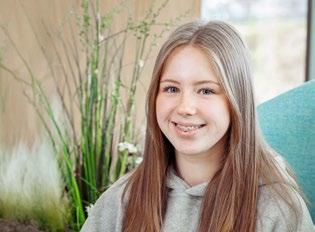
Statistics lessons at RSFC are always engaging and enjoyable. I’ve developed real-world skills and grown in confidence. The teachers are approachable and supportive, helping me deepen my understanding and passion for the subject.
Charley Timlin
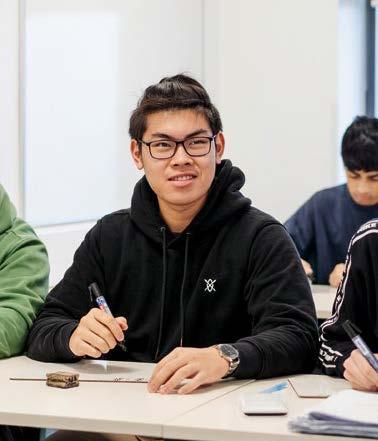
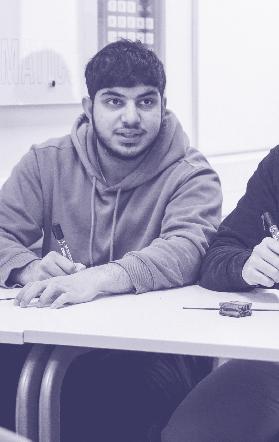

College entry requirements apply as detailed on page 27. In addition, a grade 5 or above is required in GCSE Mathematics and a grade 4 in GCSE English Language.



Theology, Philosophy & Ethics (TPE) at RSFC is the study of religion from a philosophical, ethical and Christian perspective. We follow the OCR A level Religious Studies specification. It considers ancient and contemporary ideas surrounding morality.
TPE is a traditional subject, which is highly regarded by universities. It is essential in an evolving world which is increasingly concerned with good ethical practices, diversity and the need to understand different cultural and religious viewpoints for social harmony.
If you have an interest in philosophical concepts, want to learn more about religion and have an open mind, this is the subject for you.
& ETHICS?
You can expect highly engaging lessons, lively discourse, creativity and controversial subject matter. This A level is split into three components: philosophy of religion, religious ethics, and developments in Christian thought. It is an essay-based subject, which requires lots of critical thinking, discussion, debate and persuasive writing. TPE complements many other subjects such as Psychology, Politics, Sociology and Business.
TPE will support your progression to higher education and employment in a variety of roles and sectors. You will develop a wide range of transferable skills to support you in your career. Many students have progressed to study Philosophy, Politics, Medicine, Journalism, Teaching, Nursing and Business, to name just a few.
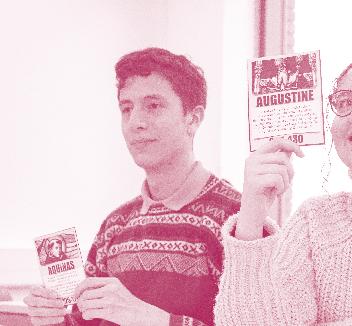
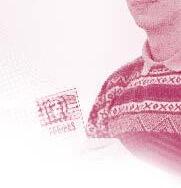
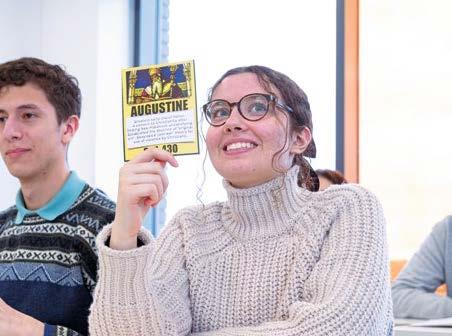

Assessment is through examination at the end of the two-year course. There are three papers:
Paper 1: Philosophy of religion
Paper 2: Religious ethics
Paper 3: Developments in Christian thought
Philosophy of Religion: Ancient philosophical influences; soul, mind and body; arguments for God’s existence; the problem of evil; religious experience; religious language; the nature or attributes of God.
Theology, Philosophy and Ethics has let me explore diverse perspectives and debate complex ideas. It’s improved my critical thinking and argumentation skills, which I know will be incredibly useful at university and beyond.
Religion and Ethics: Normative ethics (natural law, situation ethics, Kantian ethics and utilitarianism), applied ethics (euthanasia, business ethics and sexual ethics), conscience and meta ethics.
Developments in Christianity Thoughts: Augustine’s teaching on human nature; knowledge of God, death and the afterlife; the person of Jesus; liberation theology and Marx; the challenge of secularism; Christian moral action; Christian moral principles; gender and society/theology; religious pluralism and society/theology.
College entry requirements apply as detailed on page 27. In addition, a grade 5 or above is required in GCSE English Language.


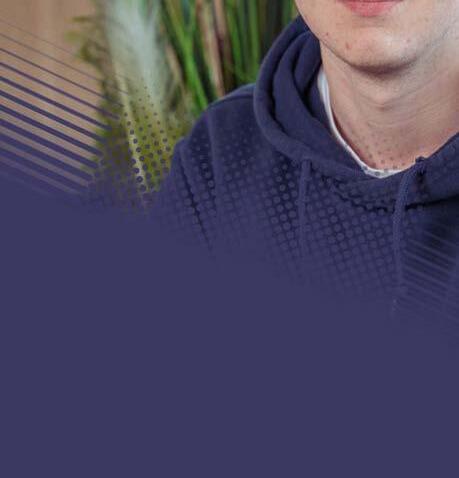


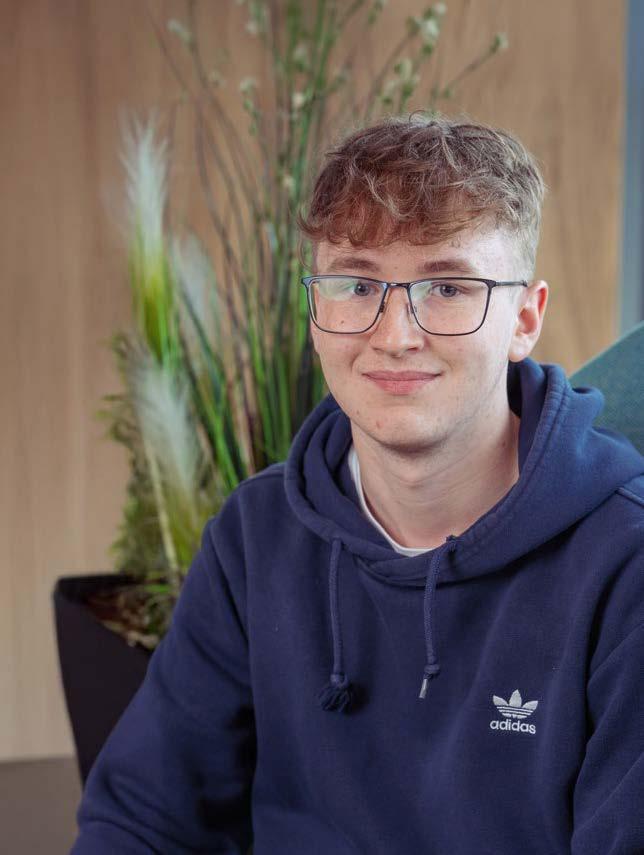






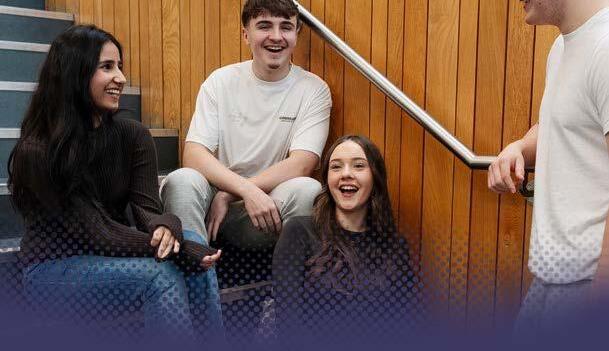


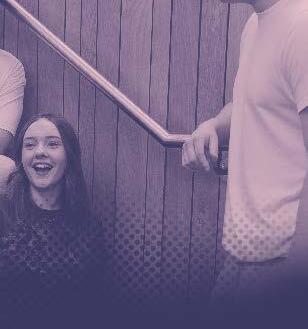

Students need to be given independence and responsibility for their own learning to prepare them for their next steps to university or employment.
We provide this freedom in a very supportive context, with close monitoring and guidance. We believe it is essential that, as parents and carers, you should be kept fully informed and up-to-date about your young person’s progress while at Rochdale Sixth Form College.
We will keep you involved through a variety of methods, including Parents’ and Carers’ Evenings to discuss academic progress with subject teachers; action plans; newsletters and online access to attendance data and current targets via our online portal, Cedar.
We ask that you keep in contact with your young person’s Student Performance and Development Leader (SPDL), telephone Student Administration in the case of absences and do not take your young person on holiday in term time. We ask too that you support us to help your young person find the right balance between their social life, paid work and study.

Young people in the defined vulnerable groups are eligible for a bursary of up to £1,200 a year, which equates to approximately £30 per week during term time.
The defined vulnerable groups are students who are:
Receiving Income Support or Universal Credit (UC) because they are financially supporting themselves or care for someone who is dependent on them and living with them, such as a child or partner
Receiving Disability Living Allowance or Personal Independence Payments in their own right as well as Employment and Support Allowance or UC in their own right
The fund is used to assist students who may benefit from financial assistance to complete their course.
Any such contributions will only be made towards costs incurred for attending college. (The 16-19 bursary does not provide childcare funding – please refer to the Care to Learn website for under-20 childcare funding.) The bursary fund is limited and allocations will be based on financial need. Financial assistance will mainly be in the form of weekly credits on students’ ID cards for the purchase of meals and resources in college. Further assistance may be available for items such as: participation in trips and visits, UCAS application and the purchase of other resources required for college activities. Allocations will not be made until a student is enrolled and fully engages with their studies.
Eligibility for free meals is based on an assessment of household income.
If you or your parents/carers are in receipt of one or more of the following benefits, you may be eligible for free meals:
Income Support
Income-based Jobseeker’s Allowance
Income-related Employment and Support Allowance (ESA)
Support under part VI of the Immigration and Asylum Act 1999
The guaranteed element of State Pension Credit
Child Tax Credit (provided you are not also entitled to Working Tax Credit and have an annual gross income of no more than £16,190, as assessed by His Majesty’s Revenue and Customs)
Working Tax Credit run-on – paid for four weeks after you stop qualifying for Working Tax Credit
Universal Credit – your household income must be less than £7,400 a year (after tax and not including any benefits you receive)
Our Pass is a membership scheme for young people who live in Greater Manchester, and supports both school leavers and care leavers.
Those eligible have the chance to become a member – and potentially enjoy two benefits:
First, free bus travel across Greater Manchester. For a one-off £10 fee, members can travel on most local buses, any day of the week, for free from the moment your pass is live until 31 August 2028.
Second, membership unlocks exclusive offers and experiences: discounts, special offers, free tickets, swimming and leisure passes, merchandise, taster sessions and much more.
Create an account to order your card online at www.ourpass.co.uk You can apply from May 2026 and can use your card automatically from 1 September 2026. FAQs available at www.ourpass.co.uk


Rochdale Sixth Form College offers a discretionary, subsidised travel scheme for students living outside of the Greater Manchester area.
For more information on the College Travel Subsidy, please contact: bursary@rochdalesfc.ac.uk
There are many bus routes across the borough and beyond that lead to RSFC.
All RSFC students living in the Greater Manchester area are eligible for FREE travel through TFGM’s Our Pass scheme.
Our Pass is a FREE bus travel scheme for 16-18 year olds who live in Greater Manchester and offers discounts on tram travel too.
Purchasing the 16-17 Saver through the trainline.com or 16-17saver.co.uk can reduce travel costs by 50%. Visit either of these websites for more information. (Valid until your 18th birthday).
Please be aware that there is no on-site student parking available at RSFC. Chargeable car parks are available around the town centre within walking distance to the college.
We have bike stands on the north side of the building for securing your bike while you are at college. We do not have parking facilities for mopeds or motorcycles.
We look forward to welcoming you!
Read the prospectus and look at our website. Think carefully about the subjects you might want to study at RSFC.
RSFC staff will visit your school to talk to you about the application process, so please have your questions ready. You can also contact the college with your questions in a number of ways including email, telephone and via our social media channels.
Look out for our open events where you will be able to meet staff and find out what RSFC has to offer you.



Attend one of our open events on Saturday 18 October or Thursday 20 November 2025 See page 27 for more information.

If you have decided that RSFC is the place for you, you can now begin completing the application form online at: www.rochdalesfc.ac.uk
Have you completed your application form yet?
Don’t worry, you still have some time left. You might need to get some more advice about your subject choices from your teachers, parents/carers or the careers office. Alternatively, you can give us a call.
Shortly after we have received your application, we will interview you for your place at RSFC. These interviews are informal and will give you further advice and support on your choices.
The deadline for applications from students is 12pm on Thursday 18 December 2025.
Students will be invited to an interview with a member of staff at the college or at your school.
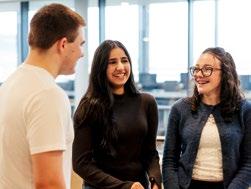
MAY 2026
GCSE RESULTS ARRIVE
It is now time to enrol at Rochdale Sixth Form College! Our Enrolment days will be Thursday 20 and Friday 21 August 2026
Please ensure that you are available on these dates as places cannot be guaranteed for those who do not attend.

You should have received an update on the progress of your application. If you haven’t heard from the college, please contact us.
We will be sending you some further information in the post about enrolment and what will be happening in your first few weeks of college.
You will be invited to our New Student Welcome Day. Attendance is a compulsory part of the enrolment process.

Following your Enrolment Day, you will receive information and dates for the Induction Day and the first day of teaching.

A. The interview is very informal and enables you to ask any questions you may have. It provides an opportunity for the college to find out a little bit more about you and to ensure that your subject choices are right for you and your chosen future career. It isn’t anything to worry about!
A. One of the benefits of attending RSFC is not having to wear a uniform. We just ask that you dress in a manner appropriate to a purposeful and diverse learning environment.
A. Yes. Your Student Performance and Development Leader (SPDL) will work with you to support your next steps, whether that be to university, an apprenticeship or employment. The college will also provide support in securing a career placement.

Visit our website: rochdalesfc.ac.uk where further subject information can be found. Attend one of our open events in October and November.
Complete your RSFC application. This can be found online at: rochdalesfc.ac.uk
Attend your interview at RSFC where you will discuss your subject choices and future progression in detail.

